#Marie of Brabant
Explore tagged Tumblr posts
Text








Royal Birthdays for today, May 13th:
Alexander Nevsky, Grand Prince of Vladimir, 1221
Marie of Brabant, Queen of France, 1254
Mary Stewart, Countess of Arran, 1453
Maria Theresa, Holy Roman Empress + Queen of Germany, Hungary, Croatia, and Bohemia, 1717
Maria Christina of Austria, Duchess of Teschen, 1742
Francis, Duke of Cadiz, 1822
Maria, Princess of Vindin, 1970
Prince Carl Philip, Duke of Värmland, 1979
#maria theresa#maria christina of austria#marie of brabant#mary stewart#Alexander Nevsky#prince carl philip#princess maria#francis of spain#royal birthdays#long live the queue
12 notes
·
View notes
Text
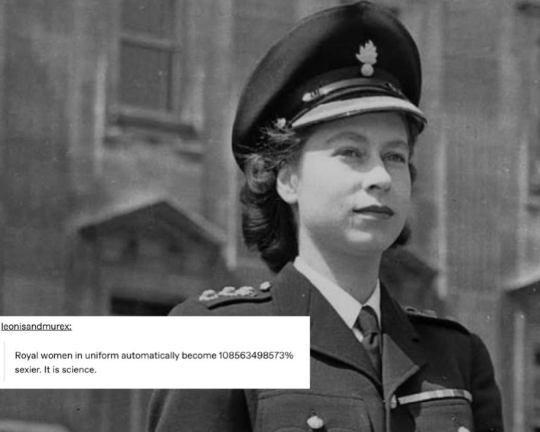

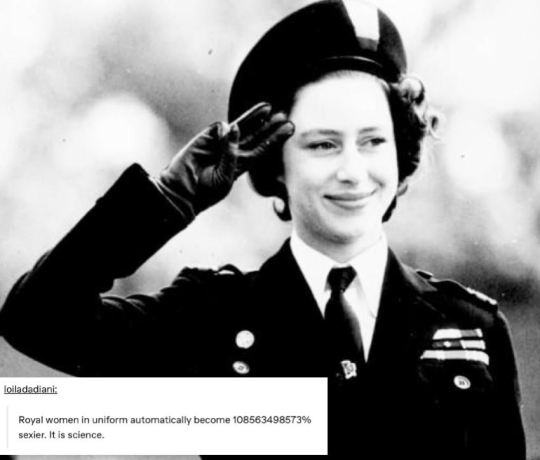
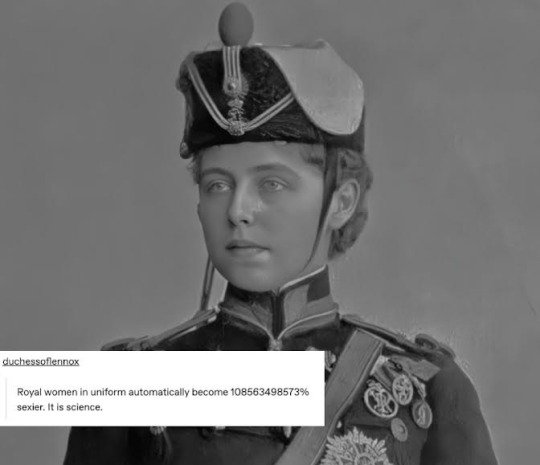

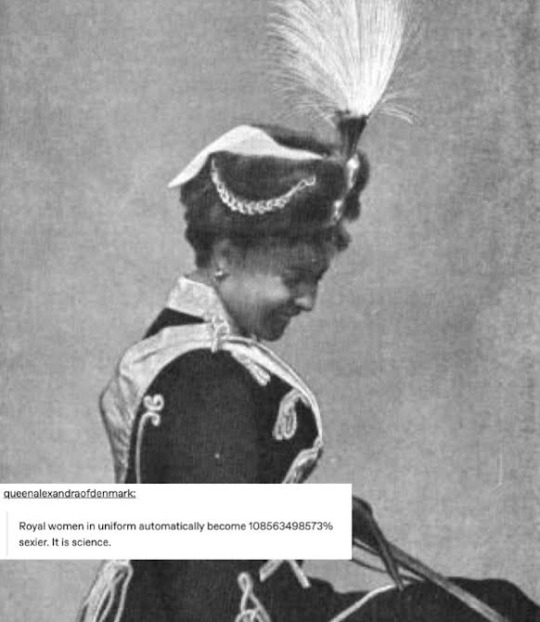
royal women + text post memes ✨💗
(thanks friends who participated!)
#hehehehehehehhe#thank u @duchessofvolterra for inspiring this post! 💖#queen elizabeth ii#princess anne#princess royal#princess margaret#queen marie of romania#crown princess marie of romania#princess Elisabeth#duchess of brabant#victoria princess royal#empress victoria of germany#crown princess victoria of prussia#royal women
105 notes
·
View notes
Text
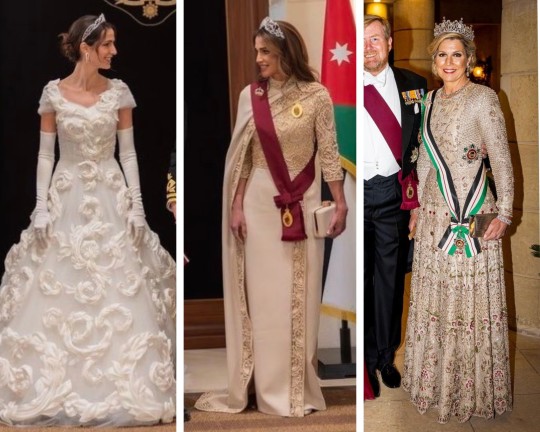



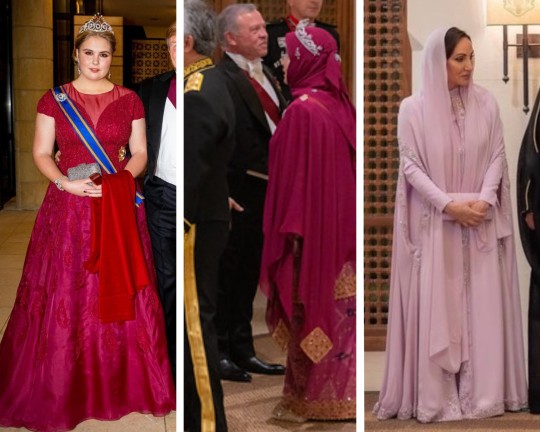


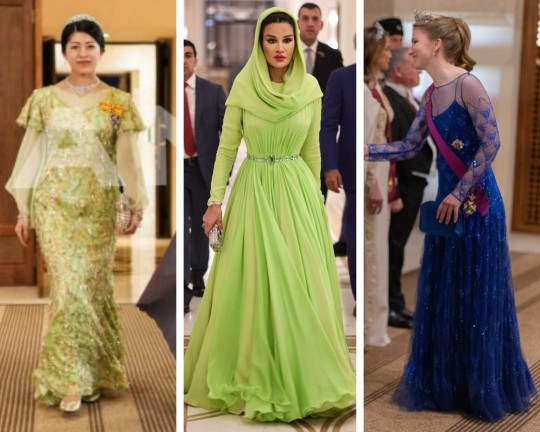

THE FASHIONISTAS
1 JUNE 2023 || The fashion of the Royal Ladies and other Guests at the State Banquet held in honour of the Royal Wedding of Crown Prince Hussein and Crown Princess Rajwa in Jordan || requested by anonymous
#the fashionistas#the fashionistas 23#princess of wales#princess catherine#crown princess mary#queen maxima#queen rania#rajwa al saif#crown princess rajwa#crown princess victoria#princess rajwa#princess salma#princess beatrice#princess iman#kate middleton#hereditary princess sophie#queen jetsun pema#princess catharina amalia#princess of orange#duchess of brabant#princess elisabeth#queen sofia#british royal family#british royals#royalty#brf#royal#royal fashion#royal wedding of rajwa & hussein#state banquet jordan royal wedding 23
86 notes
·
View notes
Text

Prince Léopold Philippe Charles Albert Meinrad Hubert Marie Michel of Belgium, Duke of Brabant, later King Leopold III
Belgian vintage postcard
#hubert#philippe#leopold#sepia#king#marie#photography#léopold philippe#charles#vintage#charles albert meinrad hubert marie michel#michel#brabant#postkaart#meinrad#leopold iii belgian#later#prince#ansichtskarte#ephemera#carte postale#postcard#postal#briefkaart#belgian#duke#photo#belgium#lopold#tarjeta
8 notes
·
View notes
Text










My 160 favorite new royal outfits of 2023 in no specific order part 10.
#princess leonor#leonor princess of asturias#princess of asturias#lady gabriella windsor#lady gabriella kingston#princess estelle#zara tindall#zara phillips#queen letizia#sophie duchess of edinburgh#duchess of edinburgh#crown princess mary#queen jetsun pema#princess elisabeth#duchess of brabant#royal fashion#fashion
11 notes
·
View notes
Text




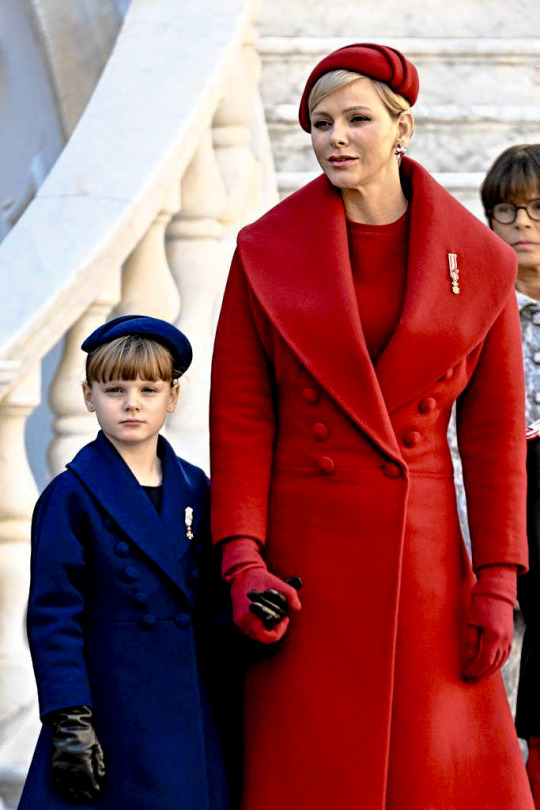

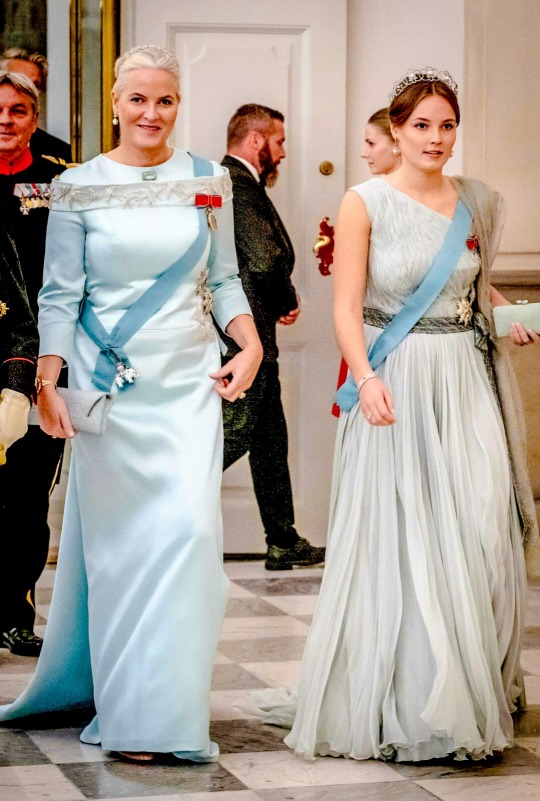

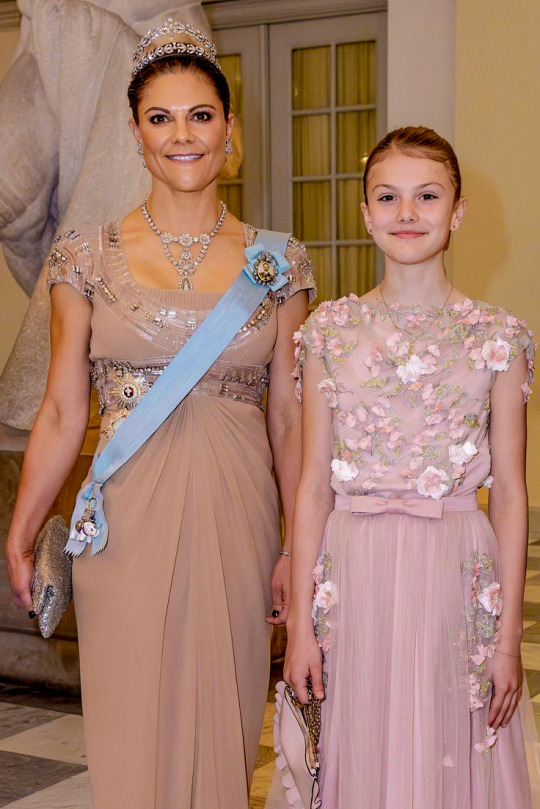

Happy International Women's Day -March 8th 2024.
•Queen Mathilde of Belgium, Crown Princess Elisabeth of Belgium, Duchess of Brabant and Princess Eléonore of Belgium.
•Queen Máxima of The Netherlands, Princess Catharina-Amalia of The Netherlands, Princess Alexia of The Netherlands and Princess Ariane of The Netherlands.
•Princess Claire of Luxembourg and Princess Amalia of Nassau.
•Queen Letizia of Spain, Princess Leonor, The Princess of Asturias and Infanta Sof��a of Spain.
•Princess Charlène of Monaco and Princess Gabriella of Monaco.
•The Princess of Wales and Princess Charlotte of Wales.
•Crown Princess Mette-Marit of Norway and Princess Ingrid Alexandra of Norway.
•The then Crown Princess Mary of Denmark, Princess Isabella of Denmark and Princess Josephine of Denmark.
•Crown Princess Victoria of Sweden and Princess Estelle of Sweden.
•Princess Madeleine of Sweden, Princess Leonore of Sweden and Princess Adrienne of Sweden.
#happy international women's day#international women's day#march 2024#queen mathilde#crown princess elisabeth#duchess of brabant#queen maxima#princess catharina amalia#princess alexia#princess ariane#princess claire#princess claire of luxembourg#princess amalia#queen letizia#princess leonor#princess of asturias#princess charlene#princess gabriella#princess of wales#princess charlotte#crown princess mette marit#princess ingrid alexandra#queen mary#princess isabella#princess josephine#crown princess victoria#princess estelle#princess madeleine#princess leonore#princess adrienne
91 notes
·
View notes
Text
Prince Christian of Denmark's 18th Birthday Gala
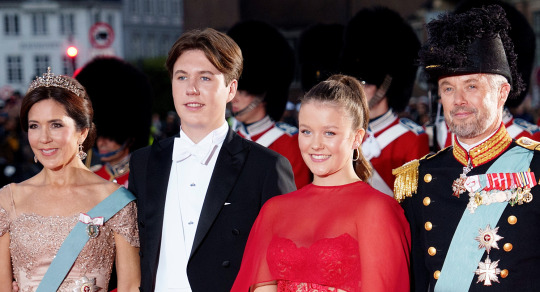
The Danish Royal Court announced today that as part of Prince Christian's 18th birthday celebrations there will be a gala dinner! It will take place on Sunday, October 15th at 5:00pm local time.
The Queen hosts a gala dinner at Christianborg Palace, to which a selection of the country’s youth organizations as well as young people who have made their mark in the worlds of sport, arts and culture are invited, among others. In addition, The Royal House of Denmark will invite up to 200 young people from the realm to take part in the celebration in cooperation with the country’s municipalities, as each of Denmark’s municipalities as well as Greenland and the Faroe Islands will have the opportunity to select two 18-year-olds to participate in the gala dinner.
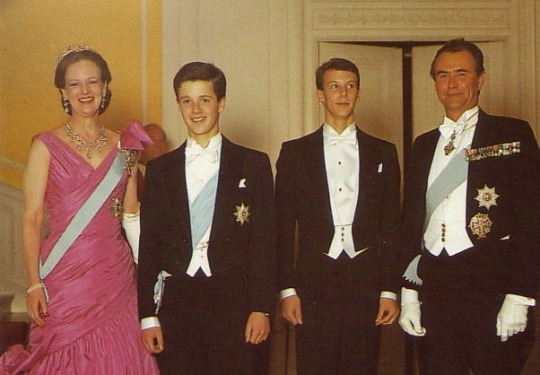
After the original announcement, I was unsure if the gala would be white tie like Crown Prince Frederik's 18th birthday in 1986 and Queen Margrethe II's in 1958 or if their would be foreign royals present but we've since found out that both are happening!
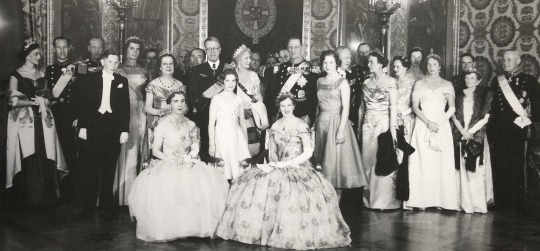
I'll keep a running guest list here as more royals confirm attendance.
Denmark
Queen Margrethe II
Crown Prince Frederik & Crown Princess Mary
Princess Isabella
Princess Josephine
Prince Vincent
Prince Joachim & Princess Marie
Count Felix
Count Henrik
Countess Athena
Belgium
Crown Princess Elisabeth, Duchess of Brabant
Greece
Queen Anne Marie
Crown Prince Pavlos & Crown Princess Marie Chantal
Netherlands
Crown Princess Catharina Amalia, Princess of Orange
Norway
Crown Prince Haakon & Crown Princess Mette Marit
Princess Ingrid Alexandra
Sayn-Wittgenstein-Berleburg
Princess Benedikte
Prince Gustav & Princess Carina
Sweden
Crown Princess Victoria & Prince Daniel
Princess Estelle
227 notes
·
View notes
Text




Happy 23rd birthday to Princess Elisabeth, Duchess of Brabant!
Born October 25th 2001, Princess Elisabeth Thérèse Marie Hélène is the heir apparent to the Belgian throne as the eldest child of King Philippe and Queen Mathilde of Belgium.
Princess Elisabeth received her International Baccalaureate diploma from the UWC Atlantic College in Llantwit Major, Wales in May 2020. She went on to obtain her Bachelor of Arts degree with upper second class honours in July 2024. In May 2024, the Belgian Royal Court announced that Elisabeth was admitted into Harvard Kennedy School to study for a two year master's degree in public policy; she started her studies at Harvard in September 2024.
On 31 August 2020, Elisabeth entered the Royal Military Academy in Brussels, studying social and military sciences, completing her one-year military training on 9 July 2021. For the next two years, she attended the Royal Military Academy's annual three-week summer camps and other practical and theoretical military classes. Elisabeth had one of the highest grades among her class.
Ten years prior to Elisabeth's birth, a new 1991 amendment of the succession line was implemented which introduced absolute primogeniture, defining her as the first in the line of succession since she is the eldest child. Should she ascend as expected, Elisabeth shall become Belgium's first female monarch.
26 notes
·
View notes
Text
Camille Desmoulins and Antoine-François Momoro


Antoine-François Momoro Camille Desmoulins
I couldn't say exactly how, but I have the impression that the printer-bookseller Antoine-François Momoro and the pamphleteer Camille Desmoulins had very opposite paths and were very different despite having similarities, if you know what I mean. Camille Desmoulins was a republican from the start, while Momoro was cautious on the matter and hesitated to publish Desmoulins' pamphlet "La France Libre" in June 1789, only releasing it on July 17, 1789. However, Momoro increasingly engaged in the revolution, eventually becoming one of its key figures and a regular at the Cordeliers Club. He was arrested after the Flight to Varennes, having signed the Champ de Mars petition. Desmoulins, on the other hand, had to go into exile. In this regard, they shared the common ground of being among the harshest critics of the monarchy, although Desmoulins had been vocal much earlier, opposing the property-based suffrage in 1789 and circulating 3,000 copies of his journal "Les Révolutions de France et de Brabant." During the Varennes episode, Momoro ensured that many issues of the Cordeliers Club Journal, which became virulent towards the king due to his escape, were distributed.
Both Camille Desmoulins and Momoro participated in the events of August 10, 1792. While Desmoulins left his mark as a key figure of July 14, 1789, Momoro, alongside Mayor Pache, inscribed the words "Liberty, Equality, Fraternity" on public buildings in the summer of 1793. Both played roles in the expulsion of the Girondins. Desmoulins was elected to the Convention, whereas Momoro, though not elected, played a significant role in the Paris Commune, overseeing supplies and soldier morale, among other tasks. He recruited volunteers from various departments and regions and was sent to Vendée alongside Charles Philippe Ronsin. Both men remained actively involved in what was considered a faction until the end, in contrast to their leaders Danton and Hébert, who were less ardent or coherent (although there were no real leaders, if you understand my point).
Their wives played more significant political roles alongside their companions than often portrayed in films. Lucile Desmoulins' journal shows her as a fervent critic of the monarchy, writing dark texts about Marie-Antoinette, approving the King's execution, and defending Camille when the future Marshal Brune asked him to temper his critiques in "Le Vieux Cordelier." Sophie Fournier, Momoro's wife, played a crucial role in her husband's dechristianization campaign, representing the Goddess of Reason armed with a pike at each ceremony (when you consider the struggle of the women of the Revolution to bear arms, in my opinion, it only demonstrates her great determination ). Both Momoro and Desmoulins had only one son from their marriages, and their wives were subject to sexist attacks, similar to Manon Roland, Louise Gély, Marie Françoise Goupil, and even Marie-Antoinette.
However, their paths diverged significantly. Initially cautious, Momoro became increasingly revolutionary, ultimately considered an ultra-revolutionary, while Desmoulins became more moderate. Momoro began to advocate for property rights redistribution, a stance not shared by Desmoulins or many Montagnards, who were moderate on this issue. Momoro supported de-Christianization, while Desmoulins opposed it. Momoro called for harsher measures against counter-revolutionary suspects, whereas Desmoulins, in "Le Vieux Cordelier," called for leniency (except for approve the mock trial of the Hébertists) and advocated for the mass release of counter-revolutionary suspects, many of whom were innocent. During the harsh winter of 1793-1794, Momoro prioritized the suffering of the Parisian masses, a concern Desmoulins did not share.
Despite this, Momoro and many considered Hébertists were sent to the guillotine. It is said that Momoro died bravely, like most of his colleagues except Hébert (his bravery was remarkable given that his wife Sophie was arrested ten days after him, and he knew she could die, yet he refused to show fear in public). Desmoulins, calm when preparing for death, panicked when Lucile was arrested (as unjustly as the arrests of the Hébert and Momoro wives) and expressed his despair all the way to the scaffold. The most horrifying part is that Desmoulins and Momoro learned of their wives' arrests the day before their execution.
My personal reflections: Honestly, I believe there is a golden legend about Camille Desmoulins, which he does not deserve, and a black legend about Momoro's faction, which is also undeserved . As I mentioned in this post https://www.tumblr.com/nesiacha/744960791081631744/the-difference-in-treatment-between-the-indulgents?source=share, in my eyes, Camille Desmoulins is highly overrated. While I do not deny his talents, I do not think he was fit for great responsibilities, unlike men he mocked, like Ronsin, Saint-Just, or Momoro, who worked tirelessly during the revolution's most challenging period. I must say in my eyes that once Desmoulins became a Convention deputy, he seemed to rest more than other revolutionaries. Consider Sonthonax, labeled a Girondin, who accepted a mission to Saint Domingue to better fight against colonizers who denied equal rights between people of color and whites, or Condorcet, who worked with Carnot on women's education with Pastoret and Guilloud, or Charles Philippe Ronsin. Many members of the Committee of Public Safety had grueling schedules in addition to their missions. Other Convention deputies, unlike Desmoulins, were sent on missions, such as Charles Gilbert Romme (and many others). While Desmoulins advocated leniency in "Le Vieux Cordelier," he approves the mock trial that led to the Hébertists' guillotining and said nothing about their wives' arrests (perhaps he planned to call for their release to be fair, but I don't know). Besides being partly responsible for the fall of the Brissotins, he remained silent on the illegal harassment Jacques Roux faced, leading to his suicide, and once said he understood the need to curb liberty for the people's salvation. Nonetheless, Camille Desmoulins should never have been arrested, let alone executed, as he only wrote articles.
In comparison, Momoro, a victim of a black legend, was clearly more honest about following a consistent line. Initially more cautious than Desmoulins in 1789, he ultimately advocated for more social rights. Despite not being elected to the Convention, he played a significant role in the Paris Commune, carrying out various missions during the revolution's most challenging period, from late 1792 to early 1794. During the Convention's invasions, he was among those who demanded vital laws for the revolution, such as the maximum or the revolutionary army's levy. His attempted insurrection was mainly due to the severe suffering of the Parisian masses in the winter of 1793-1794 and the frequent attacks on the Hébertists by the Convention (the arrests of Ronsin and Vincent in 1793), while dubious characters like Danton were free. Momoro was never rehabilitated, unlike Desmoulins, who was falsely accused of sabotaging supplies and destroying his reputation by accumulating 190,000 livres in cash, although he always refused to elevate himself, leaving behind only 26 livres and 400 livres in assignats. As Mathiez Albert, a historian harsh on Robespierre's opponents, said, "One of the main leaders of this Hébertist party, who first tried to translate and represent the popular aspirations against the wealthy bourgeois of the Convention [...] He died poor, as he had lived."
However, Momoro also had his faults, and Desmoulins was right on some points. Nothing is entirely black or white, especially among revolutionaries. The dechristianization campaigns often caused problems for the French Revolution. I understand the anger of incorruptible revolutionaries like Momoro, given the religious intolerance of that time, but intolerance cannot be fought with more intolerance. These campaigns also alienated many French people.
Moreover, if Desmoulins had dubious political allies in Danton, Momoro could be worst. He counted as an ally the horrible Nantes drowner, Carrier (Momoro didn't drown people by the way, but still a bad point for him...). Many French Revolution characters made alliances with dubious figures (like Robespierre, who knew the criticisms against Danton were well-founded but largely allied with him until a certain point), but it's still a big no for me for the alliance with Carrier. Not with one of the most hateful characters of the French Revolution. His last insurrection attempt, which led to his guillotining, was understandable, but the Convention was at a critical point and could not afford a new insurrection. Unlike Hanriot and Chaumette, he was not lucid enough on this point. He should have been more lenient with the suspect laws. Plus let's not forget that the faction call hebertist who after denunce the faction call enragés took them petition.
Even if I am harsh on Camille Desmoulins, I must acknowledge his great courage and contributions to the French Revolution, and like Momoro, he never betrayed his principles. Moreover, I fully agree with him on press freedom and often highlight his reasoning on freedom of expression. It's worth noting that Camille Desmoulins' father died shortly after his son's execution, heartbroken by his loss, just as Momoro's mother, a servant in Besançon, died a week or two after her son's death. Regardless of what one might say, both revolutionaries earned the right to be considered important figures in the 1789-1794 period.
I would like to end with two phrases these two revolutionaries reportedly said shortly before their deaths:
Momoro, during his condemnation: "I am accused, I who gave everything for the Revolution!"
Camille Desmoulins in jail : "I had dreamed of a republic that everyone would have adored."
P.S.: I have searched everywhere for a biography of Sophie Fournier, Momoro's wife. I found it in PDF and French, but I don't know its value.
Here is the link : https://www.sh6e.com/images/publications/Lettre_d_information/2023_05_Lettre_info_Sh6.pdf
#frev#french revolution#camille desmoulins#lucile desmoulins#momoro#sophie momoro née Fournier#cordeliers#hébertistes#indulgents
36 notes
·
View notes
Text
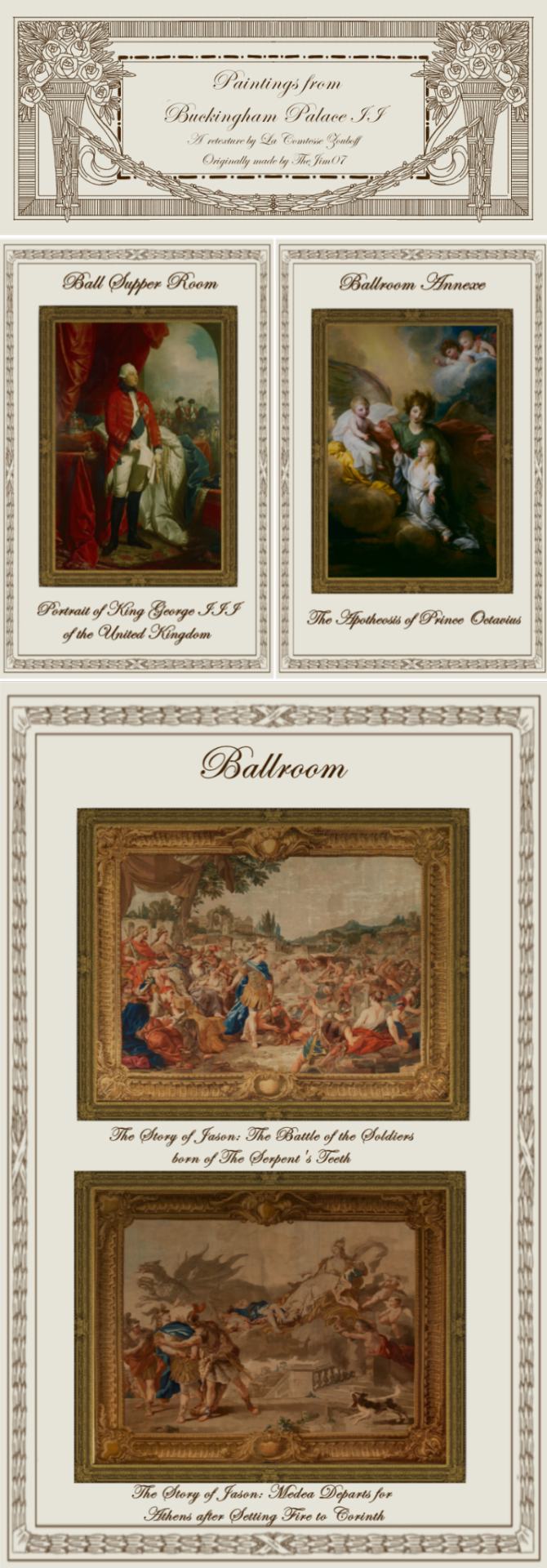
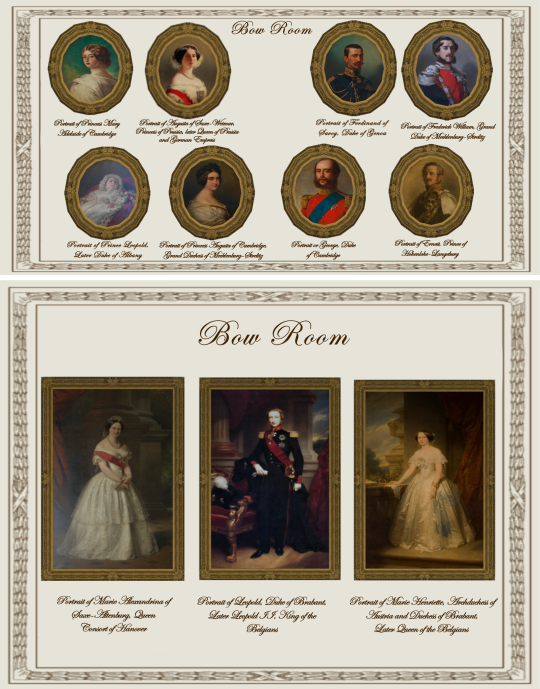
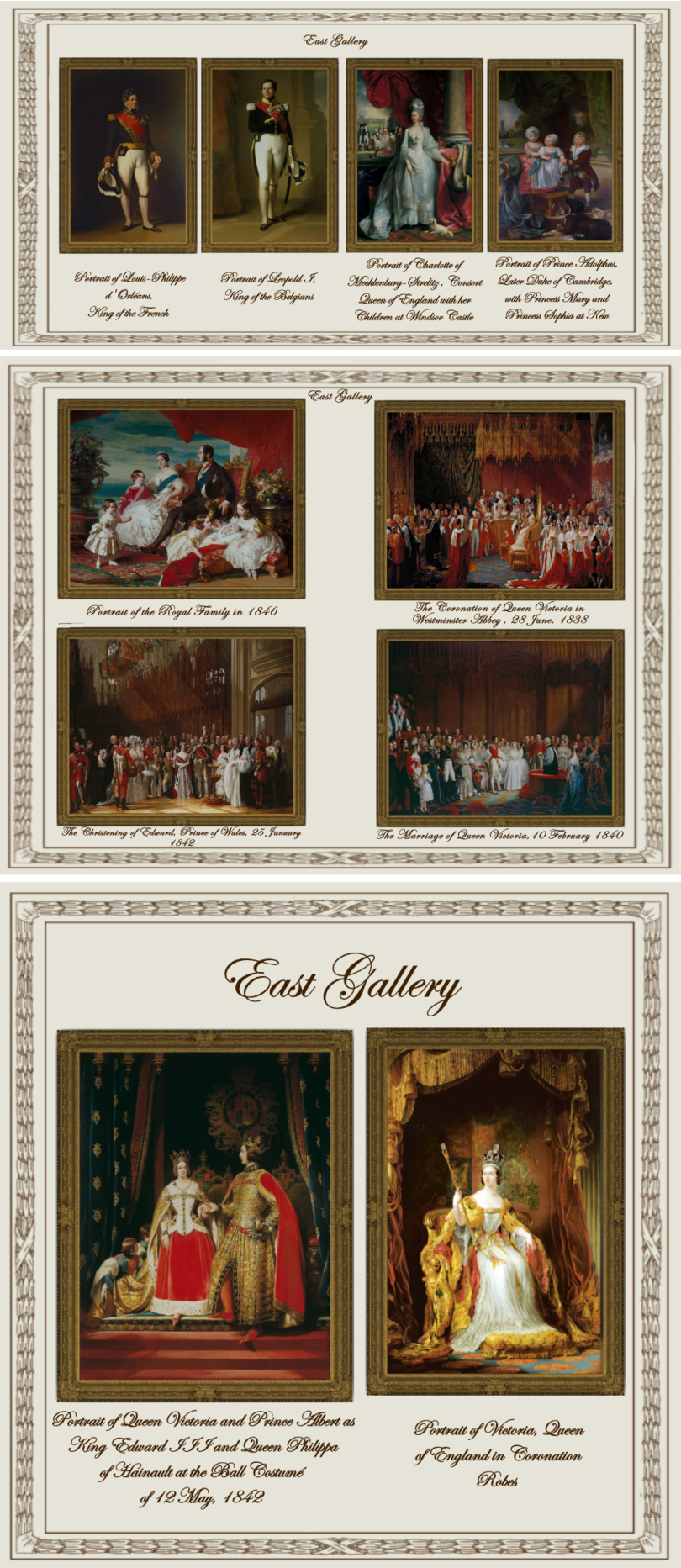
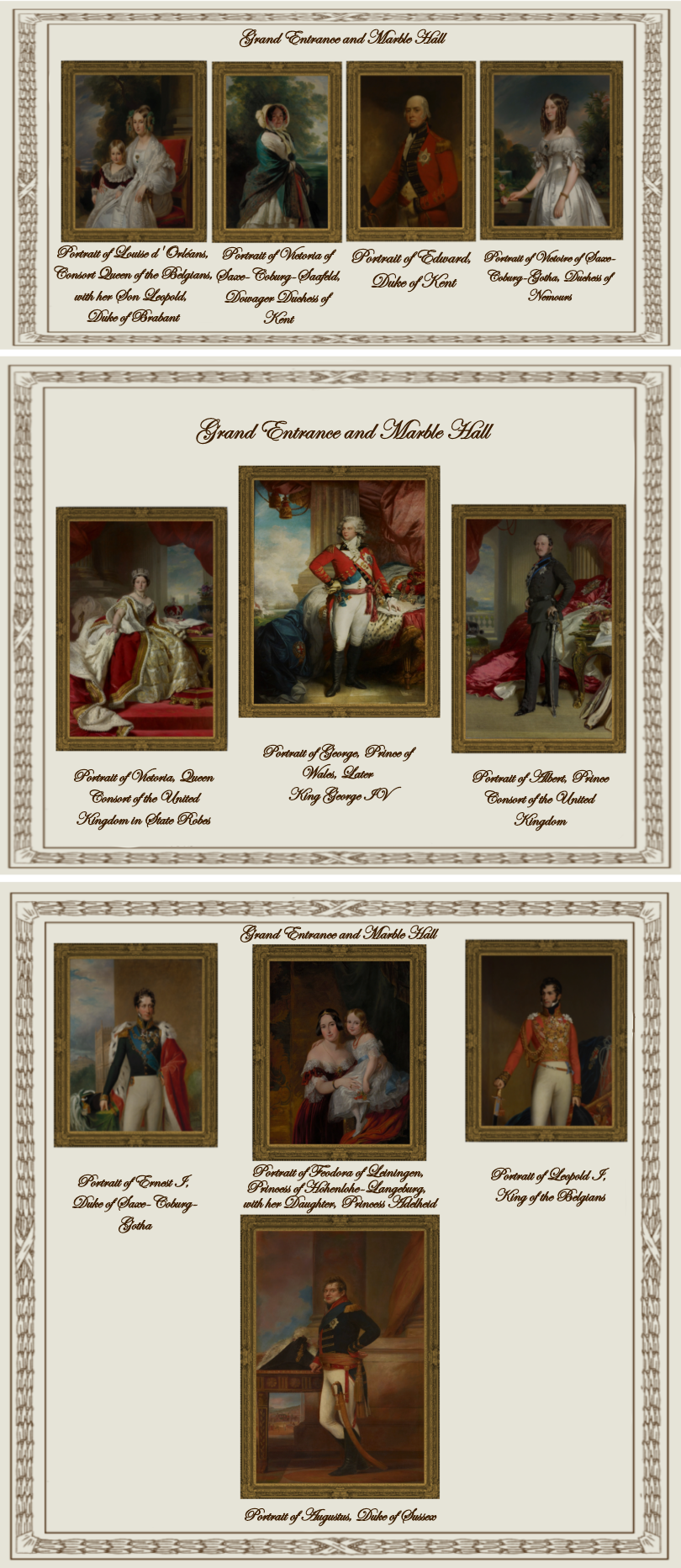

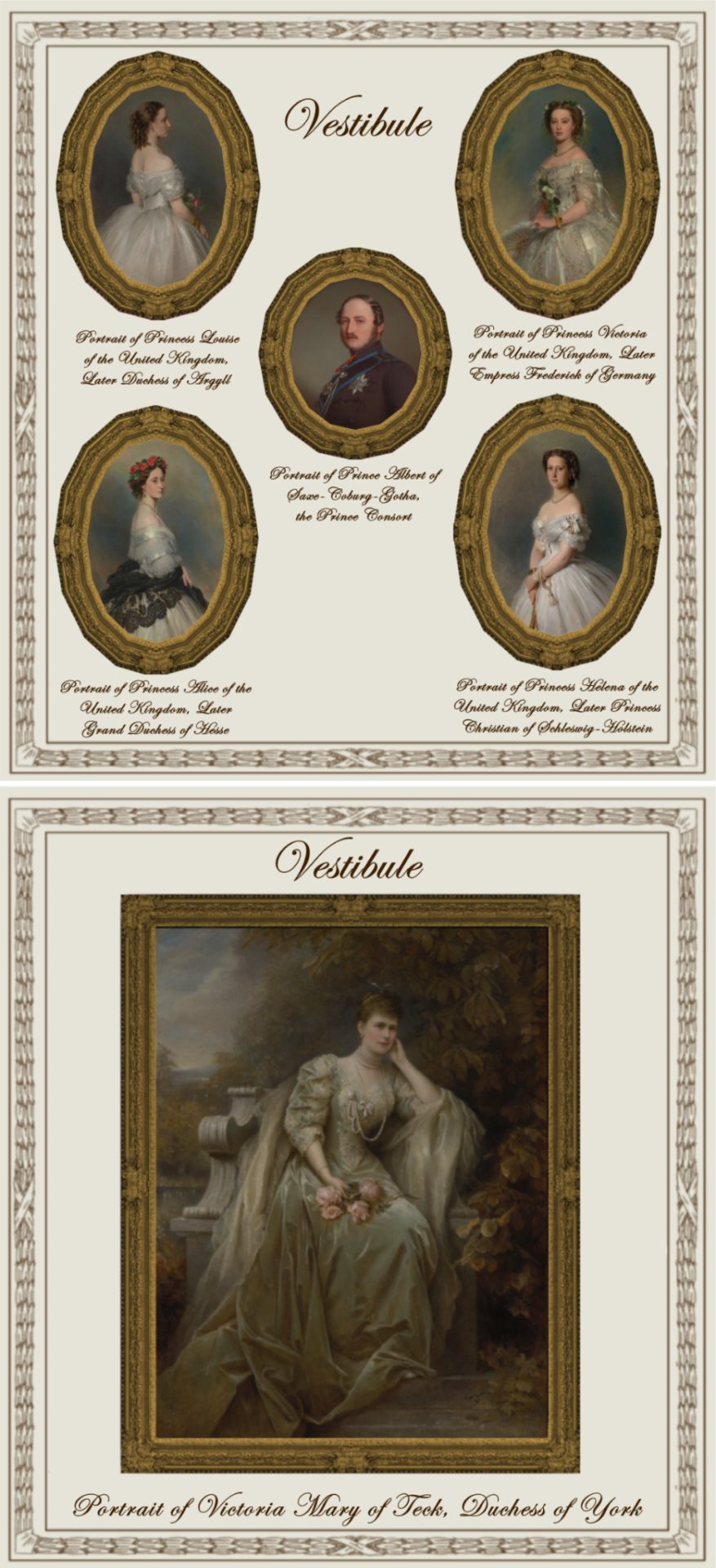
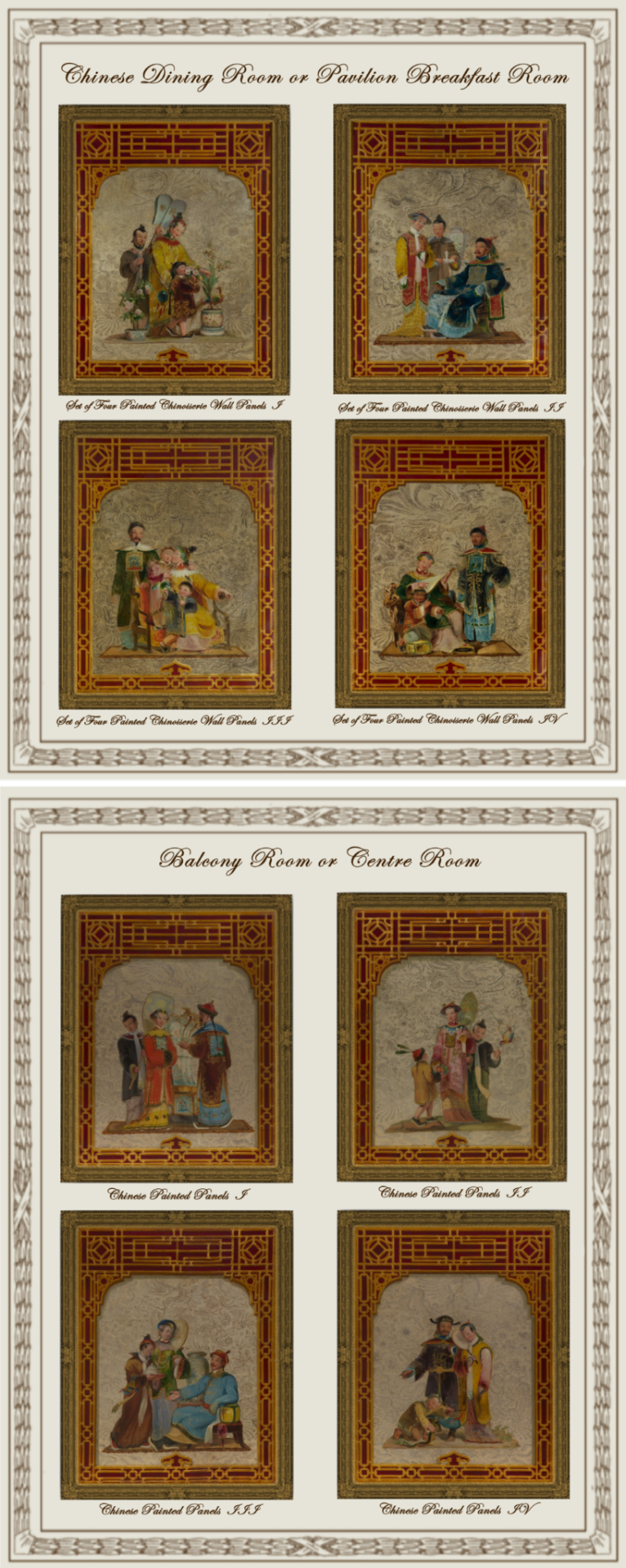

Paintings from Buckingham Palace: part II
A retexture by La Comtesse Zouboff — Original Mesh by @thejim07
Spread among 13 occupied and historic royal residences in the United Kingdom, the collection is owned by King Charles III and overseen by the Royal Collection Trust. The British monarch owns some of the collection in right of the Crown and some as a private individual. It is made up of over one million objects, including 7,000 paintings, over 150,000 works on paper, this including 30,000 watercolours and drawings, and about 450,000 photographs, as well as around 700,000 works of art, including tapestries, furniture, ceramics, textiles, carriages, weapons, armour, jewellery, clocks, musical instruments, tableware, plants, manuscripts, books, and sculptures.
Some of the buildings which house the collection, such as Hampton Court Palace, are open to the public and not lived in by the Royal Family, whilst others, such as Windsor Castle, Kensington Palace and the most remarkable of them, Buckingham Palace are both residences and open to the public.
About 3,000 objects are on loan to museums throughout the world, and many others are lent on a temporary basis to exhibitions.
-------------------------------------------------------
The second part includes paintings displayed in the Ball Supper Room, the Ballroom, the Ballroom Annexe, the Bow Room, the East Gallery, the Grand Entrance and Marble Hall, the Minister's Landing & Staircase, the Vestibule, the Chinese Dining Room and the Balcony Room.
This set contains 57 paintings and tapestries with the original frame swatches, fully recolourable. They are:
Ball Supper Room (BSR):
Portrait of King George III of the United Kingdom (Benjamin West)
Ballroom (BR):
The Story of Jason: The Battle of the Soldiers born of The Serpent's Teeth (the Gobelins)
The Story of Jason: Medea Departs for Athens after Setting Fire to Corinth (the Gobelins)
Ballroom Annexe (BAX):
The Apotheosis of Prince Octavius (Benjamin West)
Bow Room (BWR):
Portrait of Princess Mary Adelaide of Cambridge (William Corden the Younger)
Portrait of Princess Augusta of Cambridge, Grand Duchess of Mecklenburg-Strelitz (Alexander Melville)
Portrait or George, Duke of Cambridge (William Corden the Younger)
Portrait of Frederick William, Grand Duke of Mecklenburg-Strelitz (Franz Xaver Winterhalter)
Portrait of Augusta of Saxe-Weimar, Princess of Prussia, later Queen of Prussia and German Empress (Franz Xaver Winterhalter)
Portrait of Prince Leopold, Later Duke of Albany (Franz Xaver Winterhalter)
Portrait of Ernest, Prince of Hohenlohe-Langeburg (Franz Xaver Winterhalter)
Portrait of Ferdinand of Savoy, Duke of Genoa (Eliseo Sala)
Portrait of Marie Alexandrina of Saxe-Altenburg, Queen Consort of Hanover (Carl Ferdinand Sohn)
Portrait of Leopold, Duke of Brabant, Later Leopold II, King of the Belgians (Nicaise de Keyser)
Portrait of Marie Henriette, Archduchess of Austria and Duchess of Brabant, Later Queen of the Belgians (Nicaise de Keyser)
East Gallery (EG):
Portrait of Leopold I, King of the Belgians (Franz Xaver Winterhalter)
Portrait of Victoria, Queen of England in Coronation Robes (Sir George Hayter)
Portrait of Louis-Philippe d'Orléans, King of the French (Franz Xaver Winterhalter)
Portrait of Charlotte of Mecklenburg-Strelitz, Consort Queen of England with her Children at Windsor Castle (Benjamin West)
Portrait of Prince Adolphus, later Duke of Cambridge, With Princess Mary and Princess Sophia at Kew (Benjamin West)
The Coronation of Queen Victoria in Westminster Abbey, 28 June, 1838. (Sir George Hayter)
The Christening of Edward, Prince of Wales 25 January, 1842 (Sir George Hayter)
The Marriage of Queen Victoria, 10 February, 1840 (Sir George Hayter)
Portrait of the Royal Family in 1846 (Franz Xaver Winterhalter)
Portrait of Queen Victoria and Prince Albert as King Edward III and Queen Philippa of Hainault at the Ball Costumé of 12 May, 1842 (Sir Edwin Landseer)
Grand Entrance and Marble Hall (GEMH):
Portrait of Edward, Duke of Kent (John Hoppner)
Portrait of Ernest I, Duke of Saxe-Coburg-Gotha (George Dawe)
Portrait of Victoria of Saxe-Coburg-Saafeld, Dowager Duchess of Kent (Franz Xaver Winterhalter)
Portrait of Albert, Prince Consort of the United Kingdom (Franz Xaver Winterhalter)
Portrait of Victoria, Queen Consort of the United Kingdom in State Robes (Franz Xaver Winterhalter)
Portrait of Louise d'Orléans, Consort Queen of the Belgians, with her Son Leopold, Duke of Brabant (Franz Xaver Winterhalter)
Portrait of Feodora of Leiningen, Princess of Hohenlohe-Langeburg, with her Daughter, Princess Adelheid (Sir George Hayter)
Portrait of George, Prince of Wales, Later King George IV (Mather Byles Brown)
Portrait of Victoire of Saxe-Coburg-Gotha, Duchess of Nemours (Franz Xaver Winterhalter)
Portrait of Augustus, Duke of Sussex (Domenico Pellegrini)
Portrait of Leopold I, King of the Belgians (William Corden the Younger)
Minister's Landing and Staircase (MLS):
Portrait of George, Prince of Wales in Garther Robes (John Hoppner)
The Loves of the Gods: The Rape of Europa (the Gobelins)
The Loves of the Gods: The Rape of Proserpine (The Gobelins)
Vestibule (VL):
Portrait of Prince Albert of Saxe-Coburg-Gotha, the Prince Consort (Unknown Artist from the German School)
Portrait of Princess Alice of the United Kingdom, Later Grand Duchess of Hesse (Franz Xaver Winterhalter)
Portrait of Princess Helena of the United Kingdom, Later Princess Christian of Schleswig-Holstein (Franz Xaver Winterhalter)
Portrait of Princess Louise of the United Kingdom, Later Duchess of Argyll (Franz Xaver Winterhalter)
Portrait of Princess Victoria of the United Kingdom, Later Empress Frederick of Germany (Franz Xaver Winterhalter)
Portrait of Victoria Mary of Teck, Duchess of York (Edward Hughes)
Chinese Dining Room or Pavilion Breakfast Room(CDR):
Set of Four Painted Chinoiserie Wall panels I (Robert Jones)
Set of Four Painted Chinoiserie Wall panels II (Robert Jones)
Set of Four Painted Chinoiserie Wall panels III (Robert Jones)
Set of Four Painted Chinoiserie Wall panels IV (Robert Jones)
Balcony Room or Centre Room (BR):
Chinoiserie Painted Panel I (Robert Jones)
Chinoiserie Painted Panel II (Robert Jones)
Chinoiserie Painted Panel III (Robert Jones)
Chinoiserie Painted Panel IV (Robert Jones)
EXTRAS! (E):
I decided to add the rest of the tapestries from the story of Jason (wich hangs in the Grand Reception Room at Windsor Castle) and (with Jim's permission) added the original mesh for paintings number 2,3,4 & 5 from the Vestibule (seen here and here) wich was never published. These items are:
The Story of Jason: Jason Pledges his Faith to Medea (the Gobelins)
The Story of Jason: Jason Marries Glauce, Daughter of Creon, King of Thebes (the Gobelins)
The Story of Jason: The Capture of the Golden Fleece (the Gobelins)
The Story of Jason: The Poisoning of Glauce and Creon by Medea's Magic Robe (the Gobelins)
Sea Melodies (Herbert James Draper) (made by TheJim07)
-------------------------------------------------------
Found under decor > paintings for:
500§ (BWR: 1,2,3,4,5,6, & 8 |VL: 1)
570§ (VL: 2,3,4 & 5 |E: 5)
1850§ (GEMH: 1 & 3)
2090§ (GEMH: 2,6,7, 9 & 11)
3560§ (GEMH: 4,5 & 10 |BSR: 1 |EG: 1,2,3,4 & 5 |MLS: 1 |BAX: 1)
3900§ (CDR: 1,2,3 & 4 |BR: 1,2,3 & 4 |EG: 10 |VL: 6 |GEMH: 8)
4470§ (MLS: 2 |E: 1)
6520§ (BR 1 & 2| MLS: 3 |EG: 6,7,8 & 9 |BR: 1 & 2 |E: 2,3 & 4)
Retextured from:
"Saint Mary Magdalene" (BWR: 1,2,3,4,5,6, & 8 |VL: 1) found here.
"Sea Melodies" (VL: 2,3,4 & 5 |E: 5)
"The virgin of the Rosary" (GEMH: 1 & 3) found here.
"Length Portrait of Mrs.D" (GEMH: 4,5 & 10 |BSR: 1 |EG: 1,2,3,4 & 5 |MLS: 1 |BAX: 1) found here
"Portrait of Maria Theresa of Austria and her Son, le Grand Dauphin" (CDR: 1,2,3 & 4 |BR: 1,2,3 & 4 |EG: 10 |VL: 6 |GEMH: 8) found here
"Sacrifice to Jupiter" (MLS: 2 |E: 1) found here
"Vulcan's Forge" (BR 1 & 2| MLS: 3 |EG: 6,7,8 & 9 |BR: 1 & 2 |E: 2,3 & 4) found here
(you can just search for "Buckingham Palace" using the catalog search mod to find the entire set much easier!)
Disclaimer!
Some paintings in the previews look blurry but in the game they're very high definition, it's just because I had to add multiple preview pictures in one picture to be able to upload them all! Also sizes shown in previews are not accurate to the objects' actual sizes in most cases.

Drive
(Sims3pack | Package)
(Useful tags below)
@joojconverts @ts3history @ts3historicalccfinds @deniisu-sims @katsujiiccfinds @gifappels-stuff
-------------------------------------------------------
#the sims 3#ts3#sims 3#s3cc#sims 3 cc#sims 3 download#sims 3 decor#edwardian#victorian#regency#georgian#buckingham#buckingham palace#wall decor#sims 3 free cc#large pack#this was exhausting
67 notes
·
View notes
Note
How close Desmoulins and Fréron were? And what did they think of each other? I'm asking because I discovered they managed a journal together, La Tribune des Patriotes.

The seventeen year old Fréron was enrolled as a paying boarder at the college of Louis-le-Grand on September 30 1771, and just a day later, the eleven year old Camille was as well. I have however not been able to discover any evidence indicating the two were friends back then, or even an instance of one referring to the other as ”college comrade,” something which Camille otherwise is proven to have done with a whole lot of other fellow students. Perhaps this should be read as a sign the two did not know each other back then, six years after all being a rather big age difference for kids. They also don’t exactly appear to have been the same type of student, Desmoulins winning a total of four prizes during his time at the college and Fréron zero, and their teacher abbé Proyart admitting (despite his massive hostility) that student Camille had ”some success,” while Fréron ”showed few talents” and ”was cited as a rare example when speaking of laziness and indolence.” (for more info on the school days of them and other Louis-le-Grand students, see this post).
Fréron graduated from the college in 1779, Camille five years later. I have not been able to find anything suggesting they had anything to do with each other in the 1780s either. But on 23 June 1790, one year into the revolution, we find the following letter from Fréron to Camille, showing that the two by this point have forged a friendship. Judging by the content of the letter, said friendship was probably much grounded in their joint status as freshly baked patriotic journalists (Desmoulins had founded his Révolutions de France et de Brabant in November 1789, Fréron his l’Orateur du Peuple in May 1790):
I beg you (tu), my dear Camille, to insert in your first number the enclosed letter, which has so far only appeared in the journal of M. Gorsas; its publicity is all the more interesting to me as I have just, I am assured, been denounced to the commune as one of the authors of l’Ami du Roi. It is a horror that I must push back with all the energy I can. If you cannot insert it in full, in petit-romain, at the end of your first number, at least make it known by extract; you would be doing me a real service. It’s been a thousand years since I last saw you; I have had a raging fever for more than a fortnight which has prevented me from returning to Rue Saint-André; but I will go there next Saturday. Ch. de La Poype came to your house with a letter from M. Brissot de Warville, but he was unable to enter. It was to talk to you about a matter that you no doubt know about. If patriotic journalists don't line up, then goodbye freedom of the press. A thousand bonjours, my dear Camille I am very democratically your friend, Stanislas Fréron.
l’Orateur du Peuple has unfortunately not gotten digitalized yet, so we can’t check if Fréron wrote anything about Desmoulins there that could tell us more about their relationship. But in Révolutions de France et de Brabant we find Camille listing Fréron among ”journalists who are friends of truth” (number 37, August 9 1790), calling him a patriot (number 33, July 12 1790), protesting when national guards were sent to seize the journals of Fréron and Tournon (number 63, February 7 1791) and when the numbers of Fréron and Marat got plundered (number 83, July 4 1791), as well as republishing parts of the journal he finds inspiring (number 83, number 85 (July 18 1791). In both number 1 (November 28 1789) and number 65 (February 21 1791) Camille republished a poem he had written in 1783 that mocked Fréron’s father, the famous philosopher Élie Fréron, as well as his maternal uncle Thomas-Marie Royou, him too a member of the counter-enlightenment (and who, as a sidenote, had also been one of their teachers at Louis-le-Grand). Given Fréron’s open hostility towards both his father and uncle, it does however seem unlikely for this to have had any negative effect on their relationship.
Just a few days after the letter from Fréron to Desmoulins had been penned down, we find the two about to enter into partnership. On July 4 1790 the following contract was signed between Camille, Fréron and the printer Laffrey (cited in Camille Desmoulins and his wife: passages from the history of the dantonists (1874) by Jules Claretie), establishing that from number 33 of Révolutions de France et de Brabant and onwards, Fréron will be in charge of half the pages of the journal, while he from number 39 and forward will be in charge of an additional sheet particulary devoted to news:
We, the undersigned, Camille Desmoulins and Stanislas Fréron, the former living on Rue du Théâtre Français, the latter on Rue de la Lune, Porte St. Denys, of the one part; and Jean-Jacques Laffrey, living on Rue du Théâtre Français, of the other part, have agreed to the following: . 1. I, Camille Desmoulins, engage to delegate to Stanislas Fréron the sum of three thousand livres, out of the sum of ten thousand livres, which Jean-Jacques Laffrey has bound himself, by a bond between us, to pay me annually as the price of the editing of my journal, entitled Révolutions de France et de Brabant, of three printed sheets, under the express condition that said Stanislas Fréron shall furnish one sheet and a half to each number, and that during the whole term of my agreement with said Laffrey. 2. I, Stanislas Fréron, engage to furnish for each number of said journal of Révolutions de France et de Brabant, composed of three sheets, one sheet and a half, under the direction of the said Camille Desmoulins, with the understanding that this sheet and a half shall form one half of the three sheets of which each number is composed. I engage to deliver a portion of the copy of this said sheet and a half on the Wednesday of each week , and the rest during the day on Thursday, and this counting inclusively from the thirty-third number until the close of the agreement between Camille Desmoulins and Jean-Lacques Laffrey. 3. I, Jean-Jacques Laffrey, accept the delegation made by Camille Desmoulins of the sum of three thousand livres, payable, in equal payments, at the issue of each number, to Stanislas Fréron, to the clauses and conditions hereinunder; and I engage, besides, to pay to said Stanislas Fréron the sum of one thousand livres, also payable in equal payments, on the publication of each number, which thousand livres shall be over and above the said salary of three thousand livres on condition that the said Stanislas Fréron shall furnish to the journal an additional sheet per week which shall be devoted to news to begin from the thirty-ninth number, which commences the approaching quarter. And I, Stanislas Fréron, engage to furnish , at the stipulated periods the said sheet over and above, in consideration of the sum of one thousand livres, in addition to the three thousand livres delegated by Camille Desmoulins. Done, in triplicate, between us, in Paris, July 4, 1790. Stanislas Fréron, Laffrey, C. Desmoulins.
According to Camille et Lucile Desmoulins: un rêve de république (2018) by Hervé Leuwers, nothing did however come about from this contract, Révolutions de France et de Brabant continuing to rest under the authority of Camille only, while Fréron instead kept going with his l’Orateur du Peuple. Why this project never saw the light of day one can only speculate in…
When Camille and Lucile got married in December 1790, Fréron neither signed the wedding contract on the 27th, nor attended the wedding ceremony on the 29th. Following the marriage they did however become neighbors, the couple moving to Rue du Théâtre 1 (today Rue de l’Odeon 28), and into the very same building where Fréron had gone to live a few months earlier.
In number 82 (June 27 1791) of Révolutions de France et de Brabant, Camille writes that he a week earlier, the same night the royal family fled Paris, he left the Jacobins at eleven o’clock in the evening together with ”Danton and other patriots.” The Paris night comes off as so calm Camille can’t stop himself from commenting on it, whereupon ”one of us, who had in his pocket a letter of which I will speak, that warned that the king would take flight this night, wanted to go observe the castle; he saw M. Lafayette enter at eleven o’clock.” According to Hervé Leuwers’ biography, this person was Fréron, though I don’t understand exactly how he can see this…
A little less than a month later, July 17 1791, Fréron and Camille find themselves at Danton’s house together with several other people discussing the lynching of two men at the Champ-de-Mars the same morning. At nine o’clock, Legendre arrives and tells the group that two men had come home to him and said: We are charged with warning you to get out of Paris, bring Danton, Camille and Fréron, let them not be seen in the city all day, it is Alexandre Lameth who engages this. Camille, Danton and Fréron follow this advice and leave, and were therefore most likely absent from the demonstration and shootings on the Champ-de-Mars the very same day (this information was given more than forty years after the fact by Sergent-Marceau, one of the people present, in volume 5 of the journal Revue rétrospective, ou Bibliothèque historique : contenant des mémoires et documens authentiques, inédits et originaux, pour servir à l'histoire proprement dite, à la biographie, à l'histoire de la littérature et des arts (1834)).
In the aftermath of the massacre on Champ de Mars, arrest warrants were issued against those deemed guilty for them. On July 22, the Moniteur reports that the journalists Suleau and Verrières have been arrested, and that the authorities have also fruitlessly gone looking for Fréron, Legendre, Desmoulins and Danton, the latter three having already left Paris. Both Fréron and Camille hid out at Lucile’s parents’ country house in Bourg-la-Reine, as revealed by Camille in number 6 (January 30 1794) of the Vieux Cordelier. The two could resurface in Paris again by September.
On April 20 1792, the same day France declared war on Austria, Camille and Fréron again put their hopes to the idea of a partnership from two years earlier. That day, the two, along with booksellers Patris and Momoro, signed a contract for a new journal, La Tribune des Patriotes, whose first number appeared on May 7 (they had tried to get Marat to join in on the project as well, but he had said no). In the contract, Fréron undertook to each week bring 2/3 of the sheets, Camille the rest. According to Leuwers, Camille did nevertheless end up writing most of it anyway. The journal did however fail to catch an audience and ran for only four numbers.
On June 23 1792 Lucile starts keeping a diary. It doesn’t take more than a day before the first mention of Fréron, in the diary most often known as just ”F,” appears — ”June 24 - F(réron) is scary. Poor simpleton, you have so little to think about. I’m going to write to Maman.” One month and one day later Camille tells Lucile, who is currently resting up at Bourg-la-Reine after giving birth, that ”I was brought to Chaville this morning by Panis, together with Danton, Fréron, Brune, at Santerre’s” (letter cited in Camille et Lucile Desmoulins: un rêve de république). Lucile returned to Paris on August 8. In a diary entry written by her four months later it is revealed that both Fréron and the couple were at Danton’s house on the eve of the insurrection of August 10 — ”F(réron) looked like he was determined to perish. "I'm weary of life," he said, "I just want to die." Every patriot that came I thought I was seeing for the last time.” She doesn’t however, and can in the same entry instead report the following regarding the period that immediately followed the successful insurrection:
After eight days (August 20) D(anton) went to stay at the Chabcellerie, madame R(obert) and I went there in our turn. I really liked it there, but only one thing bothered me, it was Fréron. Every day I saw new progress and didn't know what to do about it. I consulted Maman, she approved of my plan to banter and joke about it, and that was the wisest course. Because what else to do? Forbid him to come? He and C(amille) dealt with each other everyday, we would meet. To tell him to be more circumspect was to confess that I knew everything and that I did not disapprove of him; an explanation would have been needed. I therefore thought myself very prudent to receive him with friendship and reserve as usual, and I see now that I have done well. Soon he left to go on a mission. (to Metz, he was given this mission on August 29 1792) I was very happy with it, I thought it would change him. […] F(réron) returned, he seems to be still the same but I don't care! Let him go crazy if he wants!…My poor C(amille), go, don’t be afraid…
Following Fréron’s return from his mission, he hung out with the couple quite frequently. On January 7 1793 we find the following letter from him to Lucile:
I beg Madame Desmoulins to be pleased to accept the homage of my respect. I have the honour to inform her that my destination is changed, that I shall not go to the National Assembly because I am setting out for the countryside with MM Danton and Saturne (Duplain). Will she have the goodness to present herself at the assembly, before ten o’clock, in the hall of deputations; she is to send for M. La Source, the secretary, who will come to her, and she will find a place for her by means of the commissary of the tribunes. I renew the assurence of my respectful devotion to Madame Desmoulins. Stanislas Fréron. Kindest regards to Camille.
Two weeks later, January 20, Lucile writes ”F(réron), La P(oype) came in the evening.” The day after that Fréron writes her the following note: ”I beg the chaste Diana to accept the homage of a quarter of a deer killed in her domains. Adieu. Stanislas Lapin.” This is the first known apperance of Fréron’s nickname within the inner circle — Lapin (Bunny). In Correspondance inédite de Camille Desmoulins(1834), Marcellin Matton, friend of Lucile’s mother and sister, writes that it was Lucile who had come up with this nickname, and that it stemmed from the fact Fréron often visited the country house of Lucile’s parents at Bourg-la-Reine and played with the bunnies they had there each time. In her diary entry from the same day, Lucile has written: ”F(réron) sent us venison.” The very next day she writes the following, showing that Fréron, as she already put it in December, ”appears to still be the same”:
Ricord came to see me. He is always the same, very brusque and coarse, truly mad, giddy, insane. I went to Robert’s. Danton came there. His jokes are as boorish as he is. Despite this, he is a good devil. Madame Ro(bert) seemed jealous of how he teased me… F(réron) came. That one always seems to sigh, but his manners are bearish! Poor devil, what hope do you hold? Extinguish a senseless r [sic] in your heart! What can I do for you? I feel sorry for you... No, no, my friend, my dear C(amille), this friendship, this love so pure, will never exist for anyone other than you! And those I see will only be dear to me through the friendship they have for you.
One day later, January 23, Lucile writes: ”F(réron), La P(oype), Po, R(obert) and others came to dinner. The dinner was quite happy and cheerful. Afterwards they went to the Jacobins, Maman and I stayed by the fire.” The day after that she has written the following, and while it’s far from confirmed Fréron is the one she’s alluding to here, it would fit rather well with the previous entries:
What does this statement mean? Why do I need to be praised so much? What do I care if I please? Do you think I’ll be proud of a few attractions? No, no, I know how to appreciate myself, and will never be dazed by praise. To you, you’re crazy, and I’ll make you feel like you need to be smarter.
Lucile’s diary entries abruptly end on February 13 1793, and a month later, March 9, Fréron was tasked with going on yet another mission by the Committee of Public Safety. This time, it would be a whole year before he was back in Paris again. It is probably during this period the following two undated letters from Fréron’s little sister Jeanne-Thérèse, wife of the military leader Jean François La Poype, were penned down and sent off to Lucile (both cited within Camille Desmoulins and his wife… (1874) by Jules Claretie. I also found a mention of a third, unpublished letter with the same sender and receiver):
Coubertin, this Monday morning. How good you are, my dear Lucile, to take such pains to answer so punctually, and to relieve my anxiety! I rely upon your kindness to let me know any good news when you know it yourself. Neither my husband nor my brother has written to me; but, according to what you tell me, M. De la Poype will be with you immediately. Scold him well, I beg, my dear Lucile, and beat him even, if you think it necessary; I give him over to you. Goodbye, dear aunt; I embrace you with all my heart. Do tell me about your pretty boy; is he well? We shall, I hope, see him at some time together. Be the first to tell me of my husband's arrival ; it will be so sweet to owe my happiness to you! Fanny is perfectly well. I received most tenderly the kiss she gave me from you. My compliments to your husband. Fréron de la Poype.
Here I come again, beautiful and kind Lucile, to plague you with my complaints, and the frightful uneasiness by which I am tormented. The letter your husband had the kindness to write to me does not allay my grief; he tells me that my brother has given him news of my husband, but he had not heard from him before his departure. He has not been absent long enough to have had time to give us news of himself since he set out. I do not hide from you, dear Lucile, state; for pity's sake, try to restore composure to my heart; let me owe tranquillity to you. They say the enemy is within forty leagues of Paris; if this is so, the country will not be safe. Will you promise to warn me of danger, and to receive me into your house? I count upon the friendship you have always been willing to show me, and I shall throw myself into your arms with the greatest confidence. I beg you to give my compliments to your dear husband. Fréron de La Poype. Coubertin, near Chevreuse. The 5th. Madame Desmoulins.
On October 18 1793, Fréron too picks up his pen again and writes the following two letters, one to Camille and one to Lucile. He is at the time in Marseille preparing for the siege of Toulon, a subject which he spends the majority of the ink on discussing, but also blends this with nostalgic remarks. Fréron addresses Camille with tutoiement, but Lucile with vouvoiement. The parts in italics got censored when the letters for the first time got published in Correspondance de Camille Desmoulins(1834):
Marseille, October 18 1793, year 2 of the republic one and indivisible Bonjour, Camille, Ricord will tell you about a lot of things. Our business in front of Toulon is going badly. We have lost precious time and if Carteaux had left La Poype to his own devices, the latter would have been master of the place more than fifteen days ago, but instead, we have to hold a regular siege and our enemies grow stronger every day by the way of the sea. It is time for the Committee of Public Safety to know the truth. I am going to write to Robespierre to inform him about everything. You may not know everything that has happened to me; I have upheld my reputation as an old Cordelier, for I am like you from the first batch; and although very lazy by nature (I say my fault), I found in the great crises a greater activity than I would have believed. But it was a question of saving the south and the army of Italy; because I am not talking about my skin; for a long time [unreadable word for me] have been an object of [unreadable word] for the counter-revolutionaries without [unreadable word]. I will prevent Toulon from forming its sections and consequently from opening its port to the English and from dragging us, at the onset of winter, into the lengths of a murderous siege. La Poype commands a division of the army in front of Toulon; you have no idea how Carteaux makes him swallow snakes: he had seized the heights of Faron, a mountain which dominates a very important fort from which one can strike down and reduce Toulon. Well! Carteaux left him at this post without reinforcement, and he was obliged to evacuate it. Carteaux would rather have the capture of Toulon delayed and missed twenty times than allow another to have the glory. Speak, thunder, burst. La Poype did not contradict himself for a single moment; you know him, he has not changed. I am perhaps a little suspicious: that is why I abstain from writing on his account; but ask all those who come from here and they will tell you what the patriots think. Did you learn from Father Huguenin that I had printed in Monaco six thousand copies of your Histoire des Brissotins which I distributed profusely in Nice and in the department of Var? You did not think you would receive the honors of printing in Italy. You see it's good to have friends everywhere. I have been very worried about Danton. The papers announced that he was ill. Let me know if he’s recovered. Tell him and give him a thousand regards from me. I look forward to seeing you again, but this after the capture of Toulon; I dream only of Toulon; it’s my nec plus ultra. I will either perish or see its ruins. Is Patagon (Brune) in Paris? Remind me of him. Farewell, my dear Camille, tell me the story of Duplain Lunettes. Is it true that he is in prison? Attacking Chaplain! ah! he is such a good man! Tell me the reasons for his detention. Has he really changed? This is inconceivable. We are doing a lot of work here; we are impatiently awaiting the troops which were in front of Lyon and the siege artillery which we lack; without that the only thing we would make in Toulon would be clear water. Answer me in grace; Ricord will give you my address. I embrace you. Fréron. PS. You have known for a long time that I love your wife madly; I write to her about it, it is indeed the least consolation that can be obtained for an unhappy bunny, absent since eight months. As there is a fairly detailed article on La Poype, I invite you to read it. Adieu, both of you, think sometimes of the best of your friends; answer me as well as Rouleau (Lucile).
Marseille, October 18 1793, year 2 of the republic one and indivisible How lucky Ricord is! So he is going to see you again, Lucile, and I, for a century, have been in exile. Communications between the southern departments with Paris have been closed for more than three months. Ever since they’ve been restored, I have wanted to write to you. A hundred times I have picked up the pen, and a hundred times it has fallen from my hand. He is leaving, this fortunate mortal, and I finally venture to give him this letter for you, the content of which he is unaware about. May it convince you, Lucile, that you have always been in my thoughts! Let Camille murmur about it, let him say all he wants about it, in that he will only act like all proprietor; but certainly he cannot do you the insult of thinking that he is the only one in the world who finds you lovable and has the right to tell you so. He knows it, that wretch of Bouli-Boula, because said in your presence: "I love Bunny because he loves Rouleau."
This poor bunny has had a great deal of adventures; he has traversed furious burrows and he has stored up ample stories for his old age. He has often missed the wild thyme which your pretty hands in small strokes enjoyed feeding him in your garden in Bourg de l’Egalité. Besides, he was not below his mission, exposing his life several times to save the republic. In seeking the glory of a good deed, do you know what sustained him, what he always had before his eyes? First, the homeland, then, you. He only wanted and he only wants to be worthy of the both of you. You will find this romantic bunny and he is not bad at it. He remembers your idylls, your willows, your shrines and your bursts of laughter. He sees you trotting around your room, running over the floor, sitting down for a minute at your piano, spending whole hours in your armchair, dreaming, letting your imagination travel; then he sees you making coffee at the roadside, scrambling like an elf and cussing like a cat, showing your teeth. He enters your bedroom; he stealthily casts a longing eye on a certain blue bed, he watches you, he listens to you, and he keeps quiet. Isn’t that you! Isn’t that me! When will these happy moments return? I don’t know, I am now pressing the execrable Toulon, I am determined to either perish on its ramparts or to scale them, flame in hand. Death will be sweet and glorious to me as long as you reserve a tear for me.
My heart is torn, my mind devoted to a thousand cares, My sister and my niece, little Fanny, are locked up in Toulon in the hospital like unfortunates; I can't give them any relief and they may lack everything. La Poype, who adores her, but still more his homeland, besieges and presses this infamous city; he cannons and bombards it without reserve, and, as the price of such admirable devotion, he is calumniated, he is hampered, his efforts are paralyzed, he is left devoid of arms, cartridges, and artillery; they water him with bitterness, they cast doubts on his civism; and while Carteaux, to whom Albitte has made a colossal reputation, but who is in a condition to take Toulon no more than I am the moon, seeks, through the lowest jealousy, to lose him in the mind of the soldier, sometimes by passing him off as a counter-revolutionary, sometimes by spreading the rumor that he has emigrated and fled to Toulon. He alone attempts daring blows, and having made himself master of a fort which dominates Toulon, he would have taken that town in a week, if Carteaux had sent him the reinforcements he in vain asked for. One thing that must not be forgotten is that in the army of Italy, the traitor Brunet, the federalist Brunet, made La Poype pass for a Maratist and an outraged montagnard. Why? Because the staff of which he was the chief, had been composed by him only of Marseillois from the 10th of August and of Cordeliers. This is the truth. Make it known to your husband. Prevent from being oppressed the most patriotic general officer perhaps of all the armies, who has never contradicted himself; who has sacrificed his wife and child to the homeland; who began by besieging the Bastille with Barras and me; who since has not varied; who has worked for a long time with l’Orateur du Peuple; who was decreed in the affair of the Champ-de-Mars, etc, etc. I leave it to your so persuasive mouth to assert these titles.
I embrace you, divine Rouleau, dearer than all the rouleaux of gold and crowns that could be offered to me. I embrace you in hope, and I will date my happiness only from the day when I shall see you again. Remind me of your dear maman and of citizen Duplessis. Will you answer me? "Oh! no, Stanislas!” Please answer me, if only because of La Poype. Show my letter to Camille, for I do not wish to make a mystery of anything.
Lucile wrote a response to Fréron that has since gone missing, but it was clearly satisfying for him judging by his next letter, dated December 11 (incorrectly September 11 in the published correspondance) 1793 and addressed to Lucile:
No, my answer will not be delayed by eight months as you put it; the day before yesterday I received, read, reread and devoured your letter; and the pen does not fall from my hands when it comes to acknowledge receipt. What pleasure it gave me !... Pleasure all the more vivid than I dared to hope! You think, then, of that poor bunny, who, exiled far from your heaths, your cabbage, your wild thyme and the paternal dwelling, is consumed with grief at seeing the most constant efforts for the glory and the strengthening of the republic lost... They denounce me, they calumniate me, when all of the South proclaims that without our measures, as active as they are wise and energetic, all this country would be lost and given over to Lyon, Bordeaux and the Vendée. I did not deign to answer Hébert (Fréron (and La Poype) had been denounced at the Jacobins on November 8 by Hébert, who said he ”was nothing more than an aristocrat, a muscadin”). I thank your wolf for having defended me, but he, in his turn, is denounced. They want to take us one after the other, saving Robespierre for last. I invite your wolf to see Raphaël Leroy, commissioner of war for the Army of Italy, who saw me in the most stormy circumstances and the most critical situation in which a representative of the people has ever been. He will say if I am a muscadin, a dictator and an aristocrat. This Leroy is one of the first Cordeliers. Camille knows him; no one is in a better position to make the truth about La Poype and me triumph.
I dare say that never has a republican behaved with more self-sacrifice than your bunny. The fact that La Poype is my brother-in-law was enough for me to make it a rule to keep him away from all command-in-chief, albeit his rank and his seniority, but even more his foolproof patriotism called him there. From then on I foresaw everything that malevolence would not fail to spread. I’d rather be unjust towards La Poype, and make obvious privileges, than I’d give arms to slander, and make people suspect even that the most vicious motives of ambition or of particular interest were involved in my conduct for some reason. When Brunet was dismissed, what better opportunity to advance La Poype? He came to command naturally and by rank. He was the oldest officer-general of the army of Italy. Well! I dismissed him and we named the oldest member of the same army, a man who had only been a general of division for a fortnight, and yet La Poype wanted to sacrifice his wife and his child, saving the national representation, with the certainty that both were going to be delivered to the Toulonnais, which did indeed happen. And these are the men that the most execrable system of defamation pursues! Vulgar souls, muddy souls, you have lent us your baseness; you could not believe, still less reach the height of our sentiments; but the truth will destroy your infernal machinations; we will do our duty through all obstacles and disgusts; we will continue to be useful to the republic, to devote ourselves to its salvation; we will sacrifice our wives and our sisters to it; we will make to our fellow citizens the faithful presentation of our actions, our labors and our most secret thoughts, and we will say to our denouncers: have you produced more titles than us to the public esteem?
Dear Lucile, tell your wolf a thousand things from me; make sure he puts forward these reasons based on notorious facts. Pay him my compliment on his proud reply to Barnave; it is worthy of Brutus, our eternal model; I am like you; a gloomy uneasiness agitates me; I see a vast conspiracy about to break out within the republic; I see discord shake its torches among the patriots; I see ambitious people who want to seize the government, and who, to achieve this, do everything in the world to blacken and dismiss the purest men, men of means and character. I am proof of that. Robespierre is my compass; I perceive, in all the speeches he holds at the Jacobins, the truth of what I am saying here. I don't know if Camille thinks like me; but it seems to me that one wants to push the popular societies beyond their goal, and make them carry out, without them suspecting it, counter-revolution, by ultra-revolutionary measures. What has just happened in Marseille is proof of this. The municipals who had dared to give the order to two battalions of sans-culottes whom we had required to march on Toulon, not to obey the representatives of the people, and who, for this audacious and criminal act, were dismissed by us, were embraced and applauded in the popular society of Marseilles, as the victims of patriotism. Fortunately we have stifled any counter-revolutionary movement; the largest and most imposing measures were taken on the spot. Many intriguers who only saw in the revolution a means of making a fortune, or of satisfying revenge or particular hatreds, dominated and led society astray, all the more easily because they are interesting in the eyes of the people through the persecutions of the sections and a few months in prison. Do you believe that there were secret committees where the motion was made to arrest the representatives of the people? Within twenty-four hours, we have mixed up all these plots: Marseille is saved. It must be observed that this new conspiracy broke out the very day when the English pushed three columns upon our army before Toulon, and seized the battery of the convention, from which they were repulsed with a terrible loss on their side.
It is not useless to notice again that the aristocrats, the emissaries of Pitt, the false patriots, the patriots of money who see their small hopes destroyed by these acts of vigor, repeat with affectation what has been said about me by Hébert at the rostrum of the Jacobins. But the vast majority of true republicans do me justice. This is the harm produced by vague denunciations, made by a patriot against patriots. I see it well; Pitt and the people of Toulon, who doubt our energy because they have tested it on more than one occasion, want, by all possible means, to keep us away from the siege of Toulon, because it is known that we are going to strike the great blows. Well! let us be reminded; we are ready. The national representation did not cross our heads like so many others. Don't come here, lovable and dear Lucile, it's a terrible country, whatever people say, a barbaric country, when you've lived in Paris. I have no caves (cavernes) to offer you, but many cypresses. They grow here naturally. Tell your glutton of a husband that the snipes and thrushes here are better than the inhabitants. If it weren't so far from here in Paris, I would send him some, but you will receive some olives and oil. Farewell, dear Lucile, I am leaving immediately for the army. The general attack is about to begin; it will have taken place when you receive this letter. We are counting on great successes and to force all the posts and redoubts of the enemy with the bayonets. My sister is still locked up in Toulon. This consideration will not stop us: if she perishes, we will give tears to her ashes; but we will have returned Toulon to the republic. I thank you for your charming memory; La Poype, whom I do not see, because he is in his division, will be very sensitive to it. Farewell once again, madwoman, a hundred times mad, darling rouleau, bouli-boula of my heart; this is a very long letter; but I gave myself up to the pleasure of chatting with you, and I took the night for it. Tell loup-loup to write to me; he's a sloth. With regard to your reply to this one, it will probably take a year to arrive. What does it matter to me! On the contrary. It's clear as day. I remember those unintelligible sentences; I remember that piano, those melodies, that melancholy tone, abruptly interrupted by great bursts of laughter. Indefinable being!... Farewell. I embrace the whole warren and you, Lucile, with tenderness and with all my soul. Stanislas.
PS - Don't forget me to the baby bunny (Horace) and his pretty grandmother Melpomène. I would also like to hear from Patagon (Brune), Saturn (Duplain) and Marius (Danton). The latter must have received a letter from me. I will write to him again. Make sure Camille communicates the parts of this letter regarding La Poype, and that his eloquent voice pleads the cause of a friend always worthy of him, always worthy of the Cordeliers. Remind us of his memory, for we love him and are attached to him for life. Consternation is in Toulon. We have killed the English, at the last incident, all their grenadiers. The Spaniards are assassinating them with their stilettos. They have already stabbed thirty of them. It’s now or never to attack. So I am leaving; the cannonade will begin as soon as we will have arrived. We are going to win laurels or willows. Prepare, Lucile, what it is you intend for me.
In the fifth number of the Vieux Cordelier, released January 5 1794, Camille did like Fréron had asked and defended both him and la Poype, clearly using Fréron’s letter as a source:
Note here that four weeks ago, Hebert presented to the Jacobins a soldier who came to heap pretentious praise on Carteaux and to discredit our two Cordeliers Fréron and La Poype who nevertheless had come close to taking Toulon in spite of envy and slander; because Hebert called Freron, just as he called me, a ci-devant patriot, a muscadin, a Sardanapalus, a viédasse. Take note citizens that Hebert has continued to insult Fréron and Barras for two months, to demand their recall to the Committee of Public Safety and to commend Carteaux, without whom General La Poype would perhaps have retaken Toulon six weeks ago, when he had already seized Fort Pharon. Take note that when Hébert saw that he could not influence Robespierre on the subject of Fréron because Robespierre knows the Old Cordeliers, because he knows Freron just as he knows me; note that it was then that this forged letter signed by Fréron and Barras arrived at the Committee for Public Safety, from where no one knows; this letter which so strongly resembled one which managed to arrive two days ago at the Quinze Vingts, which made out that d’Eglantine, Bourdon de l’Oise, Philippeaux and myself wanted to whip up the sections. Oh! My dear Fréron, it is by these crude artifices that the patriots of August 10 are undermining the pillars of the old district of the Cordeliers. You wrote ten days ago to my wife ”I only dream of Toulon, I will either perish there or return it to the republic, I’m leaving. The cannonade will begin as soon as I arrive; we are going to win a laurel or a willow: prepare one or the other for me.” Oh! My brave Fréron, we both wept with joy when we learned this morning of the victory of the republic, and that it was with laurels that we would go to meet you, and not with willows to meet your ash. It was in the assault with Salicetti and the worthy brother of Robespierre, that you responded to the calumnies of Hébert. Things are therefore the same both in Paris and Marseille! I will quote your words, because those of a conqueror will carry more weight than mine. You write to us in this same letter: I don't know if Camille thinks like me; but it seems to me that one wants to push the popular societies beyond their goal, and make them carry out, without them suspecting it, counter-revolution, by ultra-revolutionary measures. What has just happened in Marseille is proof of this. Oh well! My poor Martin (this could be a reference to the the drawing ”Martin Fréron mobbed by Voltaire” which depicts Fréron’s father Élie Fréron as a donkey called ”Martin F.”), were you therefore pursued by the Père Duchesnes of both Paris and Bouches-du-Rhône? And without knowing it, by that instinct which never misleads true republicans, two hundred leagues apart, I with my writing desk, you with your sonorous voice, we are waging war against the same enemies! But it is necessary to break with you this colloquium, and return to my justification.
The very same day, Fréron wrote a third letter to Lucile. Again, the parts in italics were censored when the letter was first published in 1836:
You did not answer me, dearest Lucile, and my punctuality has so dumbfounded you that your astonishment still lasts. You had deferred my answer to eight months; you see if you are a good prophetess. I inform you with a sensitive pleasure (which you will share, I am sure) that my sister and my niece did not perish; that they found a way to wear themselves out in the dreadful night which preceded the surrender of Toulon. She is about to give birth. I informed her of the interest you took in her sad fate; she was very sensitive and asks me to show you her gratitude. Answer me then, lazy that you are, and ungrateful, which is worse. One breaks the silence after a year, after centuries, and one gets, as thank you, a few words written in distraction, Bouli-Boula, what does it do to me? The bunny is desolute; he thinks of you constantly; he thought about you amid bombs and bullets, and he would have gladly said like that old gallant: Ah! if my lady saw me! I realize with sorrow that you are upset, since Camille has been denounced by the same men who have pursued me at the Jacobins. I hope he will triumph over these attacks; I recognized his original touch in a few passages from his new journal; and I too am one of the old Cordeliers. Farewell, Lucile, wicked devil, enemy of bunnies. Has your wild thyme been harvested? I shall not delay, despite all my insults, to implore the favor of nibbling some from your hand. I asked for a month's leave to recover a bit; for I am exhausted with fatigue; afterwards I fly back into the bosom of the Convention, and I stealthily amaze myself on the grass with Martin on the paths of Bourg d’Égalité, under the eyes of la grande lapin? and in spite of your pots of water. You'll have neither olives nor oil if I don't get a response from you. You can tell me whatever you like but I love you and embrace you, right under the nose of your jealous loup-loup. Goodbye once more. Do not forget me to our shared friends. What has become of citoyenne Robert? A thousand things to your old loup-loup; I wanted to write to him, but time is short and the mail rushes me. Tell him to keep his imagination in check a little with respect to a committee of clemency. It would be a triumph for the counter-revolutionaries. Let not his philanthropy blind him; but let him make an all-out war on all industrial patriots. Goodbye again, loveliest of rouleux. My respects to your good and beautiful maman. Give my regards to the baby bunny (Horace). The letter reached Lucile within a week, but it’s with a tone less playful than Fréron’s that she answered it with on January 13 (cited in Camille Desmoulins and his wife (1874) by Jules Claretie):
Come back, Fréron, come back quickly. You have no time to lose; bring with you all the old Cordeliers you can meet up with; we have the greatest need of them. If it had pleased Heaven not to have ever dispersed them! You cannot have an idea of what is going on here! You are ignorant of everything, you only see a feeble glimmering in the distance, which can give you but a faint idea of our situation. Indeed, I am not surprised that you reproach Camille for his Committee of Clemency. He cannot be judged from Toulon. You are happy where you are; all has gone according to the wish of your heart; but we, calumniated, persecuted by the ignorant, the intriguing, and even by patriots; Robespière (sic) your compass, has denounced Camille at the Jacobins; he has had numbers 3 and 4 read, and has demanded that they should be burnt; he who had read them in manuscript. Can you conceive such a thing? For two consecutive sittings he has thundered, or rather shrieked, against Camille. At the third sitting Camille's name was struck off. Oddly enough, he made inconceivable efforts to have the cancelling reported; it was reported; but he saw that when he did not think or act according to their the will of a certain number of individuals, he was not all powerful. Marius (Danton) is not listened to any more, he is losing courage and vigour. D'Eglantine is arrested, and in the Luxembourg, under very grave charges. So he was not a patriot! he who had been one until now! A patriot the less is a misfortune the more. The monsters have dared to reproach Camille with having married a rich woman. Ah! let them never speak of me; let them ignore my existence, let me live in the midst of a desert. I ask nothing from them, I will give up to them all I possess, provided I do not breathe the same air as they! Could I but forget them, and all the evils they cause us! I see nothing but misfortune around me. I confess, I am too weak to bear so sad a sight. Life has become a heavy burden. I cannot even think - thinking, once such a pure and sweet pleasure alas! I am deprived of it… My eyes fill with tears… I shut up this terrible sorrow in my heart; I meet Camille with a serene look, I affect courage that he may not lose his keep up his. You do not seem to me to have read his five numbers. Yet you are a subscriber. Yes, the wild thyme is gathered, quite ready. I plucked it amid many cares. I laugh no more; I never act the cat; I never play my piano; I dream no more, I am nothing but a machine now. I see no one, I never go out. It is a long time since I have seen the Roberts. They have gotten into difficulties through their own fault. They are trying to be forgotten. Farewell, bunny, you will call me mad again. I am not, however, quite yet; I have still enough reason left to suffer. I cannot express to you my joy on learning that your dear sister had met with no accident; I have been quite uneasy since I heard Toulon was taken. I wondered incessantly what would be their fate. Speak to them sometimes of me. Embrace them both for me. I beg them to do the same to you, for me. Do you hear! my wolf cries out: Martin, my dear Martin, here, thou art come that I may embrace thee; come back very soon. Come back, come back very soon; we are awaiting you impatiently.
In number 6 of the Vieux Cordelier, released January 30 1794, Camille responds to Fréron’s critique regarding a committee of clemency while informing him that his father-in-law has gotten arrested:
Beware, Fréron, that I was not writing my number 4 in Toulon, but here, where I assure you that everyone is in order, and where there is no need for the spur of Père Duchesne, but rather of the Vieux Cordelier's bridle; and I will prove it to you without leaving my house and by a domestic example. You know my father-in-law, Citizen Duplessis, a good commoner and son of a peasant, blacksmith of the village. Well! The day before yesterday, two commissioners from Mutius Scaevola's section (Vincent's section, that will tell you everything) came up to his house; they find law books in the library; and notwithstanding the decree that no one will touch Domat, nor Charles Dumoulin, although they deal with feudal matters, they raid half the library, and charge two pickers with the paternal books. […] An old clerk's wallet, which had been discarded, forgotten above a cupboard in a heap of dust, and which he had not touched or even thought about for perhaps ten years, and on which they managed discovered the imprint of a few fleur-de-lis, under two fingers of filth, completed the proof that citizen Duplessis was suspect, and thus he was locked up until the peace, and seals put on all the gates of this countryhouse where you remember, my dear Fréron, that we both found an asylum which the tyrant dared not violate after we were both ordered to be seized after the massacre of the Champ-de-Mars.
Fréron was back in Paris by at least March 14, less than a month before the arrest and execution of Camille and Lucile. He is not confirmed to have tried to do anything to save his friends. Following their death, he does however appear to have laid low. He is not proven to have spoken at the Jacobins following March 26, and so far I haven’t found any recorded apperances at the Convention either. I don’t think it would be completely out of the blue to speculate in whether his choice to play an active role in the fall of Robespierre (he was one of nine deputies designated in the thermidorian pamphlet Conjuration formée dès le 5 préréal [sic] par neuf représentans du peuple contre Maximilien Robespierre, pour le poignarder en plein sénat (1794) to on May 24 1794 have formed a plan to stab him to death, and also spoke against the robespierrists during the session of 9 thermidor) to some extent was motivated by the urge to avenge his dead friends, especially since I can’t find any instance of Robespierre openly denouncing Fréron or anything to that effect.
When Fréron shortly after thermidor revived his journal l’Orateur du Peuple, he used it to rehabilitate Camille’s memory, but also used said memory as a weapon against the Jacobins. These are all mentions made of Camille and Lucile in the part of the journal currently digitalized:
[The Jacobin Club] threw from its bosom and sent to the scaffold the unfortunate Camille Desmoulins, who was guilty of no other crime than of having wanted to uncloak and put an end to those of this detestable faction. Number 7 of l’Orateur du Peuple (September 26 1794).
Camille Desmoulins to the Jacobins of Paris: Citizens, I come to open your eyes to the abyss that is growing under your feet. I have just lifted you from the lethargic sleep into which it seems that a genius enemy of our joy and your safety had plunged you. Frenchmen, wake up! Never have the scroundels that do not show themselves, but who make their numerous beutenans act, according to the expression of Legendre, been more, in labor of the counter-revolution. They feel themselves lost, carried away, like in spite of themselves and tears; so to speak, in the tumbril of public opinion. [”Camille” then goes on to conduct Fréron’s politics for approximately seven pages, most of the entire number.] As it’s Robespierre who signed my passport for the other side, and who had the attention to send my wife there too eight days later, it’s him I must thank him for the good that I have now. […] Number 9 of l’Orateur du Peuple (September 28 1794)
Have they (the Jacobins) overlooked and denounced the abhorrent tribunal of Robespierre and his co-dictators? No, they’ve even sent innocents there, such as Phelippeux [sic], Camille Desmoulins and many others. Number 28 of l’Orateur du Peuple (October 19 1794)
In Réponse de Fréron, représentant du peuple, aux diffamations de Moyse Bayle (1795), we also find the following passage:
You (Bayle) who plunged the dagger (for your pen was the knife of our colleagues) into the bosom of Camille and Phelippeaux [sic]: your features cannot freighten me; I am stronger than your insults. […] A constant truth today, in Toulon, is that at most there were a hundred and fifty rebels immolated in the national revenge. In this regard, I appeal to my colleagues Barras, Ricord, Crevés, Rovére and all the inhabitants of the Medi: if I had only told Moyle Bayle this small number, we would have been recalled and guillotined as moderates and as being necessarily the same as this poor Camille, of the indulgent faction.
And in Mémoire historique sur la réaction royale et sur les massacres du Midi (1824, published posthumously?) he writes:
During a dinner at citizen Formalguès’ where I found myself together with Legendre, Tallien, Barras and other deputies, the conversation fell on Camille Desmoulins, this child so naive and spiritual, murdered for having proposed a committee of clemency. I tell Lanjuinais, whom Camille had pleasantly called le pape of the Vendée, and who was sitting in front of me: ”But, Lanjuinais, if the poor Camille had lived, would you have him guillotined?” ”Unquestionably,” responded the jansenist. As I was very glad that other witnesses heard, from Lanjuinais' own mouth, this sweet monosyllable, in which his beautiful soul was depicted, I turned a deaf ear and began my sentence again. "Without difficulty, there is no question," resumed the holy man in an impatient tone; and thereupon one rose from the table, he made the sign of the cross, joined his hands, and said his graces.
Furthermore, Fréron stayed in touch with Lucile’s mother Annette Duplessis, helping her get back the objects confiscated by the state after Camille and Lucile’s execution, obtaining the pension their son Horace in 1796 had been promised by the Council of Five Hundred, and making sure Horace got a good education at the Prytanée Français (former Louis-le-Grand):
I have just written to Fréron, as we agreed. This is what I think you ought to ask of him: 1. Being your children’s friend, that he should take all neccesary steps in Horace’s favour with the committees. 2. That he should claim for him the family papers and his father’s manusscript. 3. That he should claim for Horace the family books; they also will be useful for his instruction; they are indispensable for the supply of his wants; besides, this justice has already been done to Citizen Boucher’s widow, therefore there is a precedent for it. Committees composed of the friends of justice ought to be proud to being useful to the orphans of patriots. Fréron and his friends cannot refuse to act in concert with you. Greetings and friendship. Brune in a letter to Annette Duplessis, March 3 1795
22 vêntose year 8 I’ve spoken to the Minister of the Interior, Madame, about your (votre) position and that of Horace with so much interest that you inspire in me. He finds it right that the son of Camille Desmoulins enters the Prytanée Français. He told me about it, but it is essential that the child knows how to read and write perfectly before his admission. I will have the honor of seeing you over the next décade, and we will discuss together the procedure to follow; I do not doubt for a single moment the success, based on the way the minister responded to me. You personally have not been forgotten. I told him (because he was unaware) that the National Convention had granted you a pension, which was not paid, and has never been paid, I fear. He is equally prepared to make you receive it. You must send me, 1. the Convention’s decree or the copy of it; 2. your demand or petition, without forgetting to specify since when your pension has not been paid. Citizen Omae? will arrive in 15 days. Yesterday I saw his wife who had just learned of the news through a letter he sent her this Thursday. A thousand hugs to the charming little Horace, and a thousands attachments to his good maman. On the first fine day I’m going to early in the morning read and re-read all the packages from Bourg Égalité and the idyll of the most lovable woman I have known. Salut and respect. Fréron. Fréron in a letter to Annette Duplessis, March 13 1800
Aside from these two letters, there’s also several unpublished ones, one dated February 20 1795 through which we learn that Fréron, with the help of deputies Aubry, Tallien, Ysabeau and Rovère obtained a reprieve on the sale of Camille’s confiscated bed and libary, which they managed to save for Horace, one dated March 1 1795 and co-authored by Fréron and Laurance to the commissioners handling the sale of the property of convicts of the section of the Théatre-Français, one dated June 17 1800 from Fréron to Annette regarding Horace’s schooling (all of these were mentioned in Camille et Lucile Desmoulins: un rêve de république), and finally one dated April 27 1800 Fréron adressed to Duplain, promising his support to Napoleon so that Horace could enter the Prytanée Français (mentioned in Journaliste, sans-culotte et thermidorien: le fils de Fréron: 1754-1802 (1909).
Finally, according to Marcellin Matton, Fréron named his two children Camille and Lucile in honor of his dead friends. However, I’ve not found any information about said children (which, if they existed at all, must have been illegitimate since Fréron never married) anywhere, neither in Fréron’s family tree nor in the 1909 biography, so perhaps Matton is mistaken here…
#fréron helping take care of horace and selling his soul to naps so that he could get a good education is like his 1 redeeming quality#guy srs wrote ”i dream about banging you in that bed you’ve got there lucile” 🤤#desmoulins#camille desmoulins#lucile desmoulins#fréron#stanislas fréron#horace desmoulins#frev friendships#frev#ask#fréron having the dead camille guest write in his journal though…#brings a whole new meaning to the term ghost writer
37 notes
·
View notes
Text
Why George Russell's Disqualification is Really Napoleon's Fault
Alright motorsports fans, with the end of the Belgian Grand Prix (held before the summer break this year because the F1 calendar is becoming increasingly cursed year after year) F1 enters its summer break. NASCAR and Indycar are on an Olympic break thanks to both series currently being on NBC (who is the US broadcaster of the 2024 Paris Olympics), and MotoGP doesn't come back from its second summer break until next week.
So what the hell am I going to talk about in this blog.
Well, George Russell won the 2024 Belgian Grand Prix until he got disqualified for having an underweight car. Some people have theorized that Mercedes made a mistake and underfueled him, others have said that George switching to a one-stop meant he lost out of valuable pitlane speed time, using up more fuel, still others have theorized it's down to the unique procedures at Spa - where drivers turn around after turn one and drive the wrong way into pit exit - that meant Russell didn't have the chance to pick up rubber and thus increase the weight of his tyres.
I, meanwhile, have a different theory.
George Russell could only have been disqualified from the Belgian Grand Prix because of Napoleon!
Yes, really.
How, you may ask? Well, the Napoleonic Wars created the conditions that ultimately allowed for the the Circuit de Spa-Francorchamps to exist. Thus, the long lap that causes F1 cars to deliberately underfuel for the race, the unique post-race procedures due to track length, and choice of this area as the venue for the Belgian Grand Prix...none of that would've been possible with Napoleon.
Our story, as all good motor racing stories do, begins in 651 when the Benedictine Monk, Saint Remaclus of Stavelot founded the dual Abbeys of Stavelot and Malmedy (which you may recognize from corner names of the Spa-Francorchamps circuit, as these are neighboring villages).
These abbeys wound gain more territory in 747 when Carloman, the Majordomo of the Franks and uncle of Charlemagne, abdicated and became a monk himself.
They would be enlarged again in 882 by Charles the Fat, Holy Roman Emperor, in compensation for the Normans raiding and burning down both abbeys the previous year.
Thus, the Princely Abbey of Stavelot-Malmedy became one of the many mosaic pieces of the complex historical mindscrew that is the Holy Roman Empire, holding territories along what is now the Belgian-Germany border. Back then though, they were a rather significant ecclesiastical territory, holding land where Lothringia met the Low Countries.
This was the exact region where, in the late 15th and early 16th century, the Dukes of Burgundy attempted to create their own sovereign territory, using the chaos of the Hundred Years War in France to become lords over Luxembourg, Hainaut, Flanders, Brabant, and Holland. Soon enough, the Princely Abbey of Stavelot-Malmedy was one of only three independent states remaining in the region.
It was Stavelot-Malmedy, an ecclesiastical state which thus couldn't easily be absorbed into secular Burgundy.
Then the Prince-Bishopric of Liege, which again, was an ecclesiastical state which meant it would be a tricky proposition for a Catholic Duke of Burgundy to try and conquer.
And finally the Duchy of Bouillon, which was a downright weird state in that the title was a secular Duchy that was sold to the Prince-Bishopric of Liege, and in the late 17th century became a sovereign possession of the La Tour d'Auvergne, a French noble family.
In any case, upon the death of the Burgundian line, their territories were divided between France, the feudal overlord of Burgundy, and Philip the Handsome (the son of Mary the Rich, the last Duchess of Burgundy, and Maximilian von Habsburg, an Austrian Prince).
Philip the Handsome was in turn married to Joanna the Mad (we should bring back the random ass nicknames people used to get in the past btw), the Queen of Castile and Aragon. Their son, Charles, would thus inherit Spain, the Burgundian possessions in the Low Countries, and, eventually, Austria and the title of Holy Roman Emperor. Yeah.
So thanks to Charles V rolling a natural 20 in his birth dice roll, Stavelot-Malmedy was suddenly one small little ecclesiastical holding squeezed between the two halves of what would eventually become known as the Spanish Netherlands.
Then, the northern half of the Spanish Netherlands decided they didn't want to be Catholic anymore. This ushered in the Dutch Revolt of the 17th century, a bloody religious struggle concurrent with the Thirty Years War and the Portuguese War of Independence that marked the end of the golden age of Spanish power.
Come 1700 and Charles II of Spain (Charles V was Charles I in Spain, regnal numbers get weird when you rule over half of Europe), the last Habsburg King of Spain, dies an inbred and infertile mess. The Low Countries become a battleground in the War of the Spanish Succession.
On one side, France and Spain, as Charles II had declared his grandnephew, the French Prince Philip of Anjou, threatened to tip the scales of western Europe towards the Bourbon dynasty.
On the other side, a grand coalition of Austria, England, the Dutch Republic, Prussia, Portugal, and Savoy aimed to contain French power.
This was the War of the Spanish Succession, and the war would be transformative for the southern Low Countries. The Spanish Netherlands went back to Habsburg hands and became the Austrian Netherlands, meanwhile, the Duchy of Cleves, just to the east, was returned to Prussia following a French occupation.
The Dutch Republic in the north was Protestant, the Austrian Netherlands were Catholic, and Protestant Prussia was emerging on the scene as well. This would more or less lay the stage for the Napoleonic Wars, where the armies of the French Republic and later the French Empire would occupy all of this land. Gone were the Austrian Netherlands, gone was Stavelot-Malmedy, Liege, and Bouillon, and gone was Prussian Cleves.
Instead, the land surrounding Spa-Francorchamps would became part of the French Department of Ourthe, named for one of the principal rivers of the region.
However, much like the War of the Spanish Succession, numerous grand coalitions would rise up against Napoleon, the primary participants being Great Britain, Austria, Prussia, the Dutch, and Russia. In 1815, they would finally defeat Napoleon once and for all, and the Peace of Vienna would shape the new postwar Europe.
Of the old Princely Abbey of Stavelot-Malmedy, Stavelot would go to the United Kingdom of the Netherlands (the new kingdom combining the modern-day Netherlands, Belgium, and Luxembourg), while Malmedy would go to the Kingdom of Prussia.
The border would be a minor tributary of the River Ambieve known for its reddish water. The name? Eau Rouge.
Fast forward to 1830 and the largely Catholic southern Netherlands revolt from their Protestant overlords in the north and demand the creation of a Kingdom of Belgium. Following a great power conference in London, the Belgians would get their wish, and in 1831, the Kingdom of Belgium was born, including Stavelot.
The Dutch would recognize Belgium Independence in 1839.
Eau Rouge was now the Belgian-Prussian border.
Come 1871, and Prussia becomes the German Empire.
Come 1914, and this border region is amongst the first overrun by the Germans in World War I. Spa becomes a major German field hospital from the get-go, and by 1918, Spa is the German military headquarters and the primary residence of Kaiser Wilhelm II.
Upon the German surrender in 1918, Kaiser Wilhelm would abdicate and leave for the Netherlands, meanwhile, France and Belgium - the countries that wore the greatest scars from World War I - would demand harsh reparations from Germany. For Belgium, this would include Eupen-Malmedy.
Thus, the great majority of the old Princely Abbey of Stavelot-Malmedy was now within Belgian borders.
Jules de Thier, owner of the La Meuse newspaper in Liege, found this new territory to be the perfect site for a high-speed triangular race track in 1921. The race would begin in old Belgium, with a run to the old border - originally they would veer right, pass through Ancienne Douane - the old customs office on the Belgian-Prussian border - then back left to rejoin the track on the other side of what is now the Eau Rouge corner - then run through the German territories.
Burnenville and Malmedy were in old Germany, then swing back at the bottom of the track, crossing back into pre-war Belgian territory in time for the Masta kink, then Stavelot, Blanchimont, and La Source would all be in pre-war Belgium as well. Cross the start-finish line after La Source (as it was back then) and then cross into former Germany again on the next lap.
Thus, the Belgian Grand Prix was born in a region that had only just been annexed from Germany.
This led to Spa again becoming a battlefield during World War II, but with the borders restored after the war, Spa would again be in Belgium and, from 1950, the Belgian Grand Prix would become a traditional staple on the Formula One calendar.
Spa-Francorchamps would be transformed a couple of times over, not assuming its current form until 2007, but it was born from the great Napoleonic shakeup in European politics.
The ancient double abbeys of Stavelot-Malmedy were separated for the first time in 1200 years, and it would take another century for them to be reunited in modern Belgium.
So yeah, if you're mad that George Russell was disqualified, blame Napoleon...or Kaiser Wilhelm II I suppose, whichever one fits your fancy.
Oh, and by the way, Lewis Hamilton takes a record-extending 105th win following his teammate's disqualification, so I suppose Mercedes still has something to be happy about.
#motorsports#racing#f1#formula 1#formula one#yeah this is just a self-indulgent blog from a history major#no one is gonna care about this blog but I had fun writing it#spa francorchamps#belgian gp 2024#belgian grand prix
21 notes
·
View notes
Text

🇯🇴 Confirmations for the wedding of Crown Prince Hussein and Rajwa Al Saif:
🇩🇰 Crown Prince Frederik and Crown Princess Mary
🇸🇪 Crown Princess Victoria and Prince Daniel
🇳🇴 Crown Prince Haakon
🇯🇵 Princess Hisako and Princess Tsuguko
🇲🇾 King Abdullah and Queen Raja of Malaysia
🇳🇱 King Willem-Alexander, Queen Maxima, and The Princess of Orange
🇱🇺 Prince Sebastien of Luxembourg
🇪🇸 King Juan Carlos and Queen Sofia, and Infanta Elena of Spain
🇧🇪 King Philippe and The Duchess of Brabant
🇷🇴 Margareta, Custodian of the Crown, and Prince Radu of Romania
🇬🇧 The Prince and Princess of Wales
#jordanian royal family#crown prince hussein#rajwa al saif#crown princess mary#crown prince frederik#crown prince haakon#prince daniel#danish royal family#swedish royal family#norwegian royal family#crown princess victoria#princess takamado#japanese imperial family#dutch royal family#queen maxima#king willem alexander#princess of orange#princess catharina amalia#grand ducal family of luxembourg#prince sebastian of luxembourg#jordanian royal wedding#belgian royal family#king philippe#princess elisabeth#duchess of brabant#british royal family#prince william#princess of wales#prince of wales
154 notes
·
View notes
Text
CONFIRMED ATTENDEES TO THE CORONATION OF
♚♛ KING CHARLES III & QUEEN CAMILLA ♛♚
───────────── ⋆⋅☆⋅⋆ ─────────────
♔ ┆ Foreign Royalty
King Felipe & Queen Letizia 🇪🇸
King Philippe & Queen Mathilde and Princess Elisabeth, The Duchess of Brabant 🇧🇪
King Jigme Khesar & Queen Jetsun Pema 🇧🇹
Yang di-Pertuan Agong Abdullah & Raja Permaisuri Agong Tunku 🇲🇾
Kīngi Tūheitia & Makau Ariki Te Atawhai of the Māori
Grand Duke Henri & Grand Duchess Maria Teresa 🇱🇺
King Carl Gustaf and Crown Princess Victoria 🇸🇪
King Willem-Alexander & Queen Maxima, Princess Beatrix and Crown Princess Catharina-Amalia, The Princess of Orange 🇳🇱
Crown Prince Haakon & Crown Princess Mette-Marit 🇳🇴
Crown Prince Fumihito & Crown Princess Kiko 🇯🇵
Crown Prince Frederick & Crown Princess Mary 🇩🇰
Prince Albert & Princess Charlene 🇲🇨
King Vajiralongkorn & Queen Suthida 🇹🇭
King Abdullah II & Queen Rania 🇯🇴
King Tupou & Queen Nanasipau’u 🇹🇴
Hereditary Prince Alois & Hereditary Princess Sophie 🇱🇮
King Mswati III & Queen Sibonelo LaMbikiza 🇸🇿
Crown Prince Sheikh Mishal Al Ahmad Al-Jaber Al-Sabah 🇰🇼
Crown Prince Theyazin bin Haitham Al Said 🇴🇲
Emir Tamim bin Hamad Al Thani 🇶🇦
Princess Lalla Meryem 🇲🇦
Prince Turki bin Mohammed bin Fahd Minister of State 🇸🇦
Sheikh Mansour bin Zayed 🇦🇪
King Letsie III & Queen Masenate 🇱🇸
Sultan Hassanal Bolkiah 🇧🇳
King Hamad bin Isa Al Khalifa 🇧🇭
Asantehene Otumfuo Osei Tutu II & Lady Julia of the Ashanti
♔ ┆ Deposed Royalty & Distant Family Relations
Queen Anne-Marie, Crown Prince Pavlos & Crown Princess Mary Chantal 🇬🇷
Margrave Bernhard & Margravine Stephanie of Baden
Landgrave Donatus of Hesse
Prince Philipp & Princess Saskia of Hohenlohe - Langenburg
Margareta (Custodian of the Crown) and Prince Radu 🇷🇴
Crown Prince Alexander & Crown Princess Katherine 🇷🇸
Tsar Simeon & Tsaritsa Margarita 🇧🇬
Annoying Ginger from Montecito
♔ ┆ Governor-Generals of Commonwealth Realms
Governor-General David Hurley & Linda Hurley 🇦🇺
Governor-General Sir Rodney Williams & Lady Williams 🇦🇬
Governor-General Sir Cornelius A. Smith & Lady Smith 🇧🇸
Governor-General Dame Cindy Kiro & Richard Davies 🇳🇿
Governor-General Mary Simon & Whit Fraser 🇨🇦
Governor-General Sir Patrick Allen & Lady Allen 🇯🇲
Governor-General Dame Froyla Tzalam 🇧🇿
Governor-General Dame Cécile La Grenade 🇬🇩
King's Representative Sir Tom Marsters & Lady Tuaine Marsters 🇨🇰
Governor-General Sir David Vunagi & Lady Vunagi 🇸🇧
Governor-General Sir Bob Dadae 🇵🇬
Governor-General Dame Marcella Liburd 🇰🇳
Deputy Governor-General Hyleta Liburd of Nevis
Acting Governor-General Errol Charles 🇱🇨
Governor-General Dame Susan Dougan 🇻🇨
Governor-General Sir Tofiga Vaevalu Falani 🇹🇻
♔ ┆ Heads of Governments of Commonwealth Realms
Prime Minister Anthony Albanese & Jodie Haydon 🇦🇺
Prime Minister Justin Trudeau & Sophie Grégoire Trudeau 🇨🇦
Prime Minister Philip Davis 🇧🇸
Prime Minister Dickon Mitchell 🇬🇩
Prime Minister Chris Hipkins 🇳🇿
Prime Minister Terrance Drew 🇰🇳
Prime Minister Ralph Gonsalves 🇻🇨
♔ ┆ Governmental Representatives of Commonwealth Realms
Margaret Beazley, Governor of New South Wales 🇦🇺
Linda Dessau, Governor of Victoria 🇦🇺
Jeannette Young, Governor of Queensland 🇦🇺
Chris Dawson, Governor of Western Australia 🇦🇺
Frances Adamson, Governor of South Australia 🇦🇺
Barbara Baker, Governor of Tasmania 🇦🇺
Former Prime Minister Hubert Ingraham 🇧🇸
Former Prime Minister Perry Christie 🇧🇸
Michael Pintard, Leader of the Opposition 🇧🇸
Janice Charette, Clerk to the Privy Council of Canada and Secretary to the Cabinet 🇨🇦
High Commissioner Kisha Abba Grant 🇬🇩
High Commissioner Phil Goff 🇳🇿
Christopher Luxon, Leader of the Opposition 🇳🇿
Koni Iguan, Deputy Speaker of the National Parliament 🇵🇬
Justin Tkatchenko, Minister for Foreign Affairs 🇵🇬
Rainbo Paita, Minister for Finance and National Planning 🇵🇬
Taies Sansan, Secretary for the Department of Personnel Management 🇵🇬
Gisuwat Siniwin, former Member of the National Parliament 🇵🇬
Premier Mark Brantley of Nevis
High Commissioner Moses Kouni Mose 🇸🇧
Jeremiah Manele, Minister of Foreign Affairs and External Trade 🇸🇧
♔ ┆ Foreign Heads of States + Governments
President Andrzej Duda & First Lady Agata Kornhauser-Duda 🇵🇱
President Petr Pavel and First Lady Eva Pavlová 🇨🇿
President Ferdinand Marcos Jr. and First Lady Louise Araneta-Marcos 🇵🇭
President Katalin Novák & First Gentleman István Attila Veres 🇭🇺
President Guðni Th. Jóhannesson and First Lady Eliza Reid 🇮🇸
President Michael D. Higgins & First Lady Sabina Higgins and Leo Varadkar, Taoiseach 🇮🇪
President Herzog & First Lady Michal Herzog 🇮🇱
President Egils Levits & First Lady Andra Levite 🇱🇻
President Ali Bongo Ondimba & First Lady Sylvia Bongo Ondimba 🇬🇦
President Mario Abdo Benítez & First Lady Silvana López Moreira 🇵🇾
O le Ao o le Malo Tuimalealiʻifano Vaʻaletoʻa Sualauvi II & Masiofo Faʻamausili Leinafo 🇼🇸
President Paul Kagame & First Lady Jeannette Kagame 🇷🇼
President Wavel Ramkalawan, & First Lady Linda Ramkalawan 🇸🇨
President George Vella & First Lady Miriam Vella 🇲🇹
President Julius Maada Bio & First Lady Fatima Bio 🇸🇱
Hakainde Hichilema & First Lady Mutinta Hichilema 🇿🇲
President Sergio Mattarella 🇮🇹
President Ranil Wickremesinghe 🇱🇰
President Halimah Yacob 🇸🇬
President Faure Gnassingbé 🇹🇬
President Muhammadu Buhari 🇳🇬
President Filipe Nyusi 🇲🇿
President Frank-Walter Steinmeier 🇩🇪
President Vahagn Khachaturyan 🇦🇱
President Alar Karis 🇪🇪
President Sauli Niinistö 🇫🇮
President Emmanuel Macron 🇫🇷
President Luiz Inácio Lula da Silva 🇧🇷
President Alexander Van der Bellen 🇦🇹
President Vahagn Khachaturyan 🇦🇲
President Salome Zourabichvili 🇬🇪
President Katerina Sakellaropoulou 🇬🇷
President Abdul Latif Rashid 🇮🇶
President Vjosa Osmani 🇽🇰
President George Weah 🇱🇷
President Gitanas Nausėda 🇱🇹
President Mohamed Ould Ghazouani 🇲🇷
President Maia Sandu 🇲🇩
President Stevo Pendarovski 🇲🇰
President Lazarus McCarthy Chakwera 🇲🇼
President Ibrahim Mohamed Solih 🇲🇻
President William Ruto 🇰🇪
President Irfaan Ali 🇬🇾
President Wiliame Katonivere 🇫🇯
President Paul Biya 🇨🇲
President Nikos Christodoulides 🇨🇾
President Mohamed Bazoum 🇳🇪
President Marcelo Rebelo de Sousa 🇵🇹
President Klaus Iohannis 🇷🇴
President Macky Sall 🇸🇳
President Zuzana Čaputová 🇸🇰
President Nataša Pirc Musar 🇸🇮
President Võ Văn Thưởng 🇻🇳
Emmerson Mnangagwa 🇿🇼
Chairwoman of the Council of Ministers Borjana Krišto 🇧🇦
Prime Minister Sheikh Hasina 🇧🇩
Prime Minister Han Duck-soo 🇰🇷
Prime Minister Shehbaz Sharif 🇵🇰
President Alain Berset of the Swiss Confederation & Muriel Zeender 🇨🇭
Prime Minister Galab Donev 🇧🇬
♔ ┆ Governmental Representatives
First Lady Jill Biden & Finnegan Biden and John Kerry, Special Presidential Envoy for Climate 🇺🇸
First Lady Olena Zelenska 🇺🇦
First Lady Verónica Alcocer 🇨🇴
Vice President Jagdeep Dhankar 🇮🇳
Vice President Fuat Oktay 🇹🇷
Vice President Tiémoko Meyliet Koné 🇨🇮
Vice President Han Zeng 🇨🇳
Vice President Mohammed B.S Jallow 🇬🇲
Sahiba Gafarova, Speaker of the National Assembly 🇦🇿
Christophe Mboso N'Kodia Pwanga, President of the National Assembly 🇨🇩
Arnoldo André, Minister of Foreign Affairs 🇨🇷
Naledi Pandor, Minister of International Relations and Cooperation 🇿🇦
Nabil Ammar, Minister of Foreign Affairs 🇹🇳
Narayan Prakash Saud, Minister of Foreign Affairs 🇳🇵
Gustavo Manrique, Foreign Minister 🇪🇨
Ahmed Attaf, Foreign Minister 🇩🇿
Frederick Shava, Foreign Minister & Mthuli Ncube, Finance Minister 🇿🇼
Cardinal Pietro Parolin, Cardinal Secretary of State 🇻🇦
Ambassador José Alberto Briz Gutiérrez 🇬🇹
♔ ┆ Representatives from International Organizations
Amina Jane Mohammed, Deputy Secretary General 🇺🇳
Ursula von der Leyen, President of EU Commission 🇪🇺
Charles Michel, EU Council President 🇪🇺
Roberta Metsola, President of the European Parliament 🇪🇺
#coronation 2023 guest list#coronation 23#coronation guests#coronation guest list#british royals#british royalty#king charles#king charles iii#charles iii#queen camilla#queen consort camilla
238 notes
·
View notes
Text

Prince Léopold Ferdinand Élie Victor Albert Marie of Belgium, Duke of Brabant
Belgian vintage postcard
#ferdinand#briefkaart#albert marie#prince#photography#albert#vintage#prince léopold ferdinand élie victor#tarjeta#lopold#brabant#postkaart#postal#photo#belgium#marie#belgian#postcard#historic#carte postale#ephemera#sepia#victor#duke#ansichtskarte#postkarte
6 notes
·
View notes
Text










My 160 favorite new royal outfits of 2023 in no specific order part 14.
#princess elisabeth#duchess of brabant#crown princess mary#crown princess marie chantal#queen letizia#beatrice borromeo#princess iman#princess iman bint abdullah#queen maxima#queen rania#princess beatrice#royal fashion#fashion
6 notes
·
View notes